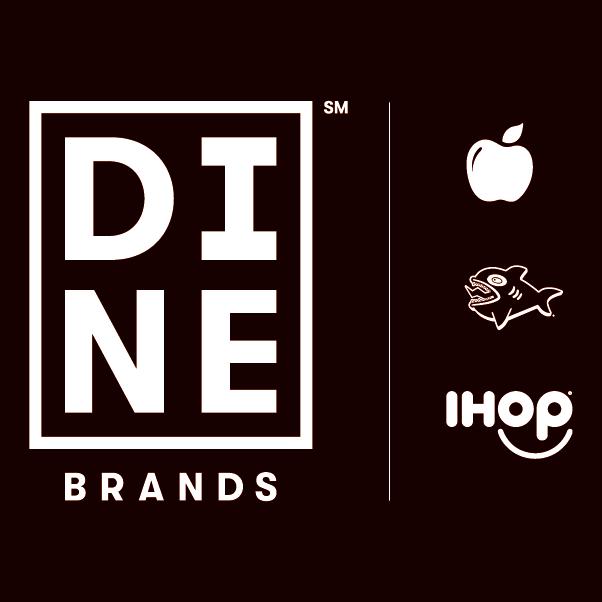Hiring in the technology age
Diversify and grow your business
2024 Dominators rankings


Hiring in the technology age
Diversify and grow your business
2024 Dominators rankings
















Multi-unit expansion



325+ Locations


*Per the 2024 Franchise Disclosure Document. The following figures are only estimates, and there is no assurance you will do as well if you rely upon our figures. If you rely upon these figures, you must accept the risk. Average gross sales are based on the gross sales reported by 211 locations, and average owner benefit is based on the unaudited operating statements supplied by the 146 locations open for the entire year ending December 31, 2023. Average owner benefit is calculated based on the 2023 year-end benchmark study from Item 19 of the 2024 Franchise Disclosure Document.

"People are really embracing this concept in the salon industry and feeling confident bringing their business to MY SALON Suite. MY SALON Suite's franchise model has been a great way for me to learn, adopt and improve the proprietary processes, products and best practices. There's very valuable know-how and support for each step of the business from the start and continued through the growth."
Alpesh Trivedi, Franchisee Multi-unit franchisee in Michigan and Illinois



When it comes to finding, hiring, and training new employees, it’s a different game today than it was in the not-so-distant past. Is your approach up to date? 42
Franchising is evolving toward a structure favoring scale and consolidation. Take a look at the biggest performers and the largest markets.
Diversification spreads the inherent risk of doing business and can smooth out the tumultuous ups and downs that roil the marketplace.
CHAIRMAN
Gary Gardner
CEO
Therese Thilgen
OPERATIONS
EXECUTIVE
Sue Logan
EVP, CHIEF
Diane Phibbs
VP BUSINESS DEVELOPMENT
Barbara Yelmene
BUSINESS DEVELOPMENT
Kry stal Acre Hope Alteri
Jeff Katis
EXECUTIVE EDITOR
Kerr y Pipes
MANAGING EDITOR
M. Scott Morris
Taking
DIGITAL EDITOR
Kevin Behan
WRITER AT LARGE
Eddy Goldberg
CREATIVE DIRECTOR
Cindy Cruz
DIRECTOR OF TECHNOLOGY
Benjamin Foley
SENIOR WEB DEVELOPER
Matt Wing
WEB DEVELOPER
Don Rush
WEB PRODUCTION MANAGER
Juliana Foley
DIRECTOR, EVENT OPERATIONS
Katy Coutts
SENIOR SUPPORT MANAGER
Sharon Wilkinson
SENIOR SUPPORT COORDINATOR
FRANCHISEE LIAISON
Leticia Pascal
SENIOR GRAPHIC DESIGNER
Michael Llantin
VIDEO PRODUCTION MANAGER
Greg Del Bene
DIRECTOR, CUSTOMER EXPERIENCE
Chelsea Weitzman
CONTENT & MARKETING MANAGER
Taylor Williams
SPONSORSHIP
BENEFITS MANAGER
Heather Stoner
Variety mitigates
Sturdy U.S. economy keeps chugging
Multi-unit, multi-brand franchisees are “changing the universe”
CONTRIBUTING WRITER
Colleen McMillar
CONTRIBUTING EDITORS
Mary Lou Atkins John DiJulius
Matt Haller
Larry Layton
Carol Schleif Tori Wagner
Paul Wilbur
Article Inquiries editorial@franchiseupdate.com
Subscriptions subscriptions@franchising.com 408-402-5681

I vividly remember my first year at the MultiUnit Franchising Conference (MUFC). Back then, it was a small, intimate gathering—nothing like the large-scale event it has become today. I was a modest Captain D’s franchisee, trying to find my footing in the franchising world. A close friend, who was a Church’s Texas Chicken franchisee, reached out and invited me to join him in Las Vegas. That decision was a turning point in my growth as a franchisee.
At that early MUFC with fewer than 100 people in attendance, I met with principals from much larger franchise groups—both franchisees and franchisors. The networking and knowledge sharing that took place were invaluable. Those one-on-one interactions gave me insights and strategies that helped shape the trajectory of my business.
Fast forward to today: While MUFC has grown exponentially with more than 2,000 participants expected this year, the value of the connections you can make has only strengthened. You might not be able to meet everyone in a single day, but the access to industry leaders, innovative concepts, and new ideas has never been more robust.
As a franchisee, I wear many hats, including real estate developer, legal advisor, and financial planner. When I attend a conference,
I mandate that I take home at least one actionable nugget—something that justifies the investment of time, travel, and resources. That’s why I always mark my calendar for the annual MUFC. It’s not just about attending; it’s about ensuring that every member of my team who attends brings back their own nugget to justify the ROI on their time.
There is no better conference for franchisees poised for growth. MUFC offers something for everyone, whether you’re a small franchise owner or part of a large, publicly traded franchisor. In one place, MUFC encourages important conversations about funding, development, technology, and legal issues. Most importantly, it creates crucial connections between franchisees and franchisors.
This conference has played a significant role in my professional journey, and I know it can do the same for you. I encourage you to join us in Las Vegas this spring. The connections you make and the insights you gain could be the catalyst that drives your business to new heights.
DAVID OSTROWE MUFC 2025 Chair

























A restaurant company unlike any other.
The Inspire portfolio is a powerful combination of iconic brands that creates one of the most innovative opportunities in the restaurant space. Inspire o ers franchise owners access to a diverse portfolio of beloved, globally recognized brands covering all day parts. With more than 32,650 locations across 57 global markets, Inspire provides tremendous runway for growth.
$32.5B Global System Sales
$9B Global Digital Sales
32,650+ Global Restaurants
2,900+ Franchisees
410M Global Guests
Learn more about franchise opportunities at inspirebrands.com/franchising
57 Global Markets
Grow your portfolio with distinct, highly-valued brands.







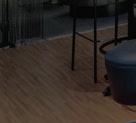




































We have the franchises.




Seize the yay!




Hottest sports bar franchise of all time.




It's GO time.




Run on it.




The best at fast and fresh.



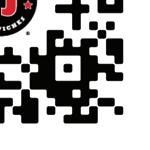
Live free, eat SONIC.




“If we are not driven to be the biggest and best, then what are we doing?”
Written by KEVIN BEHAN

For Luke Andrus, exercise and fitness mean more than a job, a business, or an industry. He considers it a calling to build his own healthy lifestyle and help others realize their fitness goals.
to be in a situation in which my kids lose me at an early age in life. For me, there has always been a deeper purpose of fitness other than the conventional goals of just having a better physique.”
After working as a videographer, Andrus returned to school to complete his degree. In 2009, a friend opened an Anytime Fitness franchise and hired Andrus as an assistant manager. A year later, Andrus became a personal trainer. He didn’t plan to keep the position for long, but the personal connections with his clients made it too difficult to leave.
“Fitness is essential in my life,” says Andrus, who has run two 50K ultra-marathons this year and plans one more. “I don’t think I’ve had more than one week without working out in the past 15 years. I think fitness needs to be filled by intrinsic passion, whether it is for appearance or to be functional in a certain way. It really comes down to what you want out of it and what you are going to enjoy doing. To me, that is the perfect place for fitness.”
In 2014, Andrus became a personal training director for five locations and won the Anytime Fitness Trainer of the Year Award. He recalls it being the breakthrough moment of his career because franchise owners started reaching out to him for advice. He was hired as a franchise business consultant by Anytime’s corporate office in December 2015.
Company: Blue Star Investments
No. of units: 46 Anytime Fitness
Age: 41
Family: Wife and 4 children
Years in franchising: 15
Years in current position: 5
His mother was diagnosed with lung cancer when he was 14, and she died two and a half years later. Seeing her ultimately lose her battle with cancer had a profound impact on his life. He took a job at a gym and started working out for the first time.
“It was a formative moment in my life that shaped me into becoming what I am,” Andrus says. “My hope for my mother’s survival started with her health and mostly focused on nutrition. That became my mission. I didn’t want
With the help of his business partners, Kevin Tupy and Kay Bergendahl, Andrus became CEO of Blue Star Investments in 2020 and purchased multiple Anytime Fitness franchises. During their first several years of ownership, they successfully navigated numerous challenges caused by the Covid-19 pandemic.
Although he has been a franchisee for only five years, Andrus already owns 46 Anytime Fitness locations and has an aggressive plan for expansion. He would like to double that number over the next five years and become the largest franchisee in the system over the next decade. Along the way, he wants to provide customers with consistently high-quality service.
“If we are not driven to be the biggest and best, then what are we doing? We don’t want
to just be the biggest; we want to be the best,” Andrus says. “We won’t forfeit quality to have the biggest unit count. Growing slow is not in our vocabulary. We want to grow fast and have quality in everything we do.”
First job: My first job was building cabinet doors in my father’s business, Christian Woodworks.
Formative influences/events: I began to take a personal interest in health when my mother was diagnosed with lung cancer. I was 14 years old at the time. She died when I was 16 years old, and I got my first job in the fitness industry shortly after.
Key accomplishments: I revisited the fitness industry in 2009 after pursuing a career in videography. In 2014, I won the Anytime Fitness Trainer of the Year Award at our international conference. Currently, we are the third-largest Anytime Fitness franchise group.
Biggest current challenge: Our biggest challenge is to continue to grow in membership and personal training in a tough economy with growing competition. This is especially difficult when other competitors offer lower prices. Anytime Fitness has done a great job of assisting us by giving us SmartCoaching technology to help with member engagement and retention, and our AF app gives members personalized plans that can be accessed anywhere. On top of this, we have a partnership with Apple Fitness+ so that our members can access workout classes at home. It’s the most personal gym experience in the world. We’re the “Cheers” of the fitness industry.
Next big goal: Our goal is to be the largest Anytime Fitness franchise group with the highest member satisfaction.
First turning point in your career: The biggest turning point in my career was when I won the Trainer of the Year Award. It gave me a platform to speak to many owners who asked for advice. This lit a fire in me to help as many business owners as I could, which led to consulting, and that eventually led to my partnership.
Best business decision: The best business decision I’ve ever made was to leave the franchisor side to become a franchisee with my partners. My business partner, Kevin Tupy, has become a mentor in my life and a wealth of knowledge on how to build a business that cares about people. Being his friend is like drinking from a fire hose.
Hardest lesson learned: One of the hardest lessons I’ve learned as a CEO is not to promote people to roles they haven’t earned. Sometimes, we let our hearts get in the way, and we promote a friend instead of an outside hire who is more qualified. It’s one thing to give someone a role that they can grow into; it’s another to give them a job they aren’t ready for just because we don’t want to hurt them. In the long run, it is crueler because they are placed in a position they aren’t ready to have.
Work week: My work week is a mixture of travel and club visits and office work spent learning about new opportunities for growth through acquisition and new development. I will work a minimum of 40 hours per week, but it often extends to time after the kids go to bed each night.
I’m still waiting for that point as a CEO that I can play golf all the time. That hasn’t happened, and I’m not sure if it ever will.
Exercise/workout: I try to practice what I preach and stay healthy. For the past year, my way to do that has been ultra running. I have a marathon and two 50K+ ultras under my belt so far in 2024 with one more to go. It’s been a great source of personal prayer and meditation on the business for me.
Best advice you ever got: This comes from my favorite character, Augustus McCrae in “Lonesome Dove,” who said, “You can’t avoid mistakes; you’ve got to learn to handle them. If you only come face to face with your own mistakes once or twice in your life, it’s bound to be extra painful. I face mine every day. That way, they usually ain’t much worse than a dry shave.” What’s your passion in business? My absolute passion is watching people advance in their careers and grow in their careers and in their personal lives. What else are we doing if we aren’t making each other better?
How do you balance life and work? Worklife balance can be defined in many ways. I define it as the ability to maintain your own identity when you are with your family. If work is a heavyweight 365 days a year to the point that I’m no longer myself, I am not balancing it correctly. The popular idea is to just shut work off and not touch it, but the business needs what it needs, and the business supports life. This really depends on the place of the business at the time and the demands it makes. When the demands are high, it’s just not as simple as shutting it off. In practice, the key for me is that when I’m present with my family, it’s important to segmentize the work and family.
My hope for my mother’s survival started with her health and mostly focused on nutrition. That became my mission. I didn’t want to be in a situation in which my kids lose me at an early age in life. For me, there has always been a deeper purpose of fitness other than the conventional goals of just having a better physique.
Instead of setting a nearly impossible standard to unplug completely, I step out when I’m needed so that my kids don’t see me buried in my work. Then I come back in when it is resolved. Even if it is a day that they have only 20 minutes with me before bedtime, the phone is off, we isolate ourselves, and they get full attention. A little goes a long way.
Guilty pleasure: I love my movies and shows. I’m quite addicted to quoting the shows I like at all the wrong times. I’m basically Michael Scott from "The Office."
Favorite book: The Brothers Karamazov by Fyodor Dostoevsky.
Favorite movie: “Big Fish.”
What do most people not know about you? I was once in a sci-fi movie called “Swamp Shark.” I played Ambulance Man #2 with zero lines. All you could see was me reaching down to lift the bikini girl into the van, and it revealed to me on national television just how much my hairline was receding.
Pet peeve: When people say, “That’s not my job.” The job is the job. Do what it takes. What did you want to be when you grew up? We all want to be rock stars, right?
Last vacation: Croatian cruise with my lovely wife—all the islands, all the wine. Person you’d most like to have lunch with: The fictional character Augustus McCrae from “Lonesome Dove.”
Business philosophy: The one that comes to mind is simply that relationships matter. Give freely to other owners as often as you can. People remember the advice you gave them when you had nothing to gain, and those relationships resonate and sometimes come back as opportunities for you. If they don’t, you still did the right thing.
Management method or style: Trust and delegate to people but step in when needed. Too many people fail to manage out of fear of micromanaging.
Greatest challenge: Finding the balance of how to scale correctly. We’ll never get it right, but we’re getting better every day.
How do others describe you? I’m not sure if I want to know that, good or bad, unless it’s affecting others negatively. But I hope they see me as someone who helps others.
Have you ever been in a mentor-mentee relationship? What did you learn? Absolutely. Every pivotal moment in my life has been assisted by a mentor. Currently, my mentor is my business partner. It’s like trying to bear hug a freight train. If I retain 15% of the knowledge he imparts to me every week, I’ll accomplish anything.
One thing you’re looking to do better: Listen more.
How close are you to operations? Very close. I’ve worked in most of the positions in this industry, including club manager, trainer, regional manager, consultant, and owner. I can’t take responsibility for its success or failure unless I’m part of it.
What are the two most important things you rely on from your franchisor? Solid platforms that track performance and consumer insights. We have to see the data and trends of what the company is doing. We need platforms that show the KPIs and measures of productivity so that we can see what is leading to those numbers. Anytime Fitness always fights for us to do that. We have a great marketing team to discover and share consumer insights. It helps to understand the needs of our clients.
What you need from vendors: Efficiency in their processes and deliveries and prompt support.
How do you train and retain? We train with a combination of corporate courses, our own LMS for our company, and mentorship. It’s got to be personal, and it must be fun. We retain them with great benefits, competitive pay, and a passionate culture. Also, we reward them as quickly as is appropriate. Give a preemptive raise to those who deserve it. Surprise them occasionally, and don’t wait until you risk losing them to reward them. My dad once said, “Pay people what they’re worth. If you’re paying them the lowest you can, you are saying to them, ‘If I could pay you less, I would.’”
How do you deal with problem employees? Visibility and documentation on work performance and corrective communication. We’ve learned that to be clear is to be kind. We log our employee coaching sessions so that when they need to be rewarded or require correction, we have the evidence.
Fastest way into your doghouse: Say the words, “No one told me to do that.”
Annual revenue: We’ll be finishing this year at more than $20 million. We have great opportunities for margins, which is largely due to our franchisor’s team and resources.
Upcoming goals: We would like to open one more club this year and acquire as much as we can. In 2025, through organic growth and acquisition, we would like to open four to six locations and acquire 20 to 24 more clubs. Growth meter: How do you measure your growth? Same-store sales are king. It’s tempting to look at overall revenue, but that’s a moving target when we are opening multiple locations a year while also acquiring existing locations. We’ve got to focus on the growth of each location.
Vision meter: Where do you want to be in five years? 10 years? The vision is to maintain our highest level of customer service and facilities while growing store count and same-store sales. In five years, I’d like to exceed 100 locations. In 10 years, we want to be the largest Anytime Fitness franchisee while still being synonymous with quality.
Do you have brands in different segments? Why/why not? We only operate Anytime Fitness clubs at the moment. When
it is the right time, we will seek more opportunities in the health space. We love the other franchises that Self Esteem Brands provides, and I can see us moving toward those in the future. For now, there is just too much opportunity for organic growth and acquisition here. How is the economy in your region(s) affecting you, your employees, your customers? We’ve definitely had to get creative. What I have seen is that people don’t mind paying for quality. Our maniacal focus is on a sales process that creates a genuine connection with our members. When they believe in us and themselves, they will invest in us and themselves.
Are you experiencing economic growth in your market? In many of our markets, yes. We have locations in urban and rural areas. That’s one of the best things about this franchise. Every town needs an Anytime Fitness. What are the best sources for capital expansion? Until now, it’s been conventional financing and using our cash flow to fund growth.
Experience with private equity, local banks, national banks, other institutions? Why/why not? We have experience with all of these, but we structure our company like a PE group. I can see us landing there in the future.
What are you doing to take care of your employees? Passion goes a long way, but in the end, they want more security. It’s important to have a clear path to positional and financial growth.
How are you handling rising employee costs (payroll, minimum wage, healthcare, etc.)? We’ve prided ourselves in covering 100% of their healthcare contribution since we have offered it. We also offer a 401(k) match for all team members, including part-timers. As for minimum wage, we work in an industry that calls for higher than that, so this hasn’t been an issue for us.
How do you reward/recognize top-performing employees? We make this a regular occurrence, giving recognition to our performers in our weekly and monthly meetings. We also give out awards and trophies once a year to our top performers.
What kind of exit strategy do you have in place? Exit? And miss all the fun? We’re just getting started!
Streamlined, uncomplicated back-of-house with a gasless kitchen, no prep operation, and automated equipment.
















“Our business is our people. We constantly strive to get the right people in the right seats.”
Written by KEVIN BEHAN
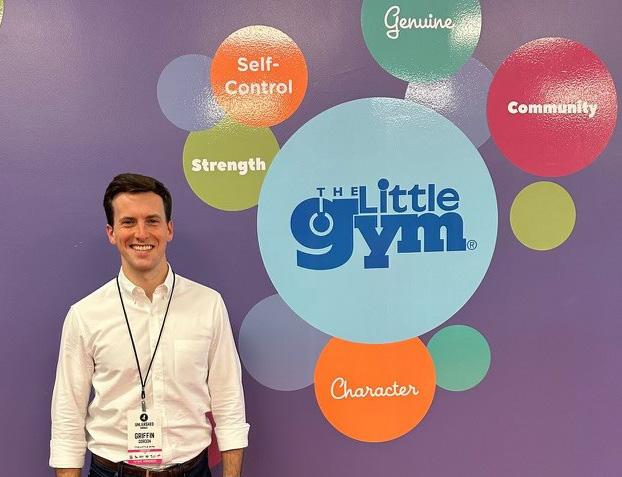
Founding Board Member/Investor (Somersault Holdings) and Founder/CEO (Taurus Capital Partners)
Company: Somersault Holdings and Taurus Capital Partners
No. of units: 22 The Little Gym
Age: 40
Family: Wife and 3 children, Parker, 6, Hudson, 4, and Georgia, 1
Years in franchising: 2
Years in current position: 2
New father Griffin Gordon was impressed when he and his wife took their oldest child to The Little Gym for the first time. They’d visited other children’s enrichment concepts, but The Little Gym’s culture was remarkable. Gordon saw how it could have a meaningful effect on children.
“The Little Gym stood alone in terms of the positive instruction, curriculum, and immediate effect it had on my daughter,” Gordon says. “Beyond the clear benefits of gymnastics-based training and activity, The Little Gym teaches kids how to develop self-confidence and socialization skills that will serve them for the rest of their lives.”
Last year, the investment firm Gordon founded and operates, Taurus Capital Partners, partnered with Hidden River Strategic Capital to purchase seven The Little Gym locations and form Somersault Holdings. The Little Gym programs work with children from 4 months to 12 years old with movement-based learning and imaginative play.
Based in Chicago, Gordon and his firm own and operate The Little Gym franchise locations in multiple regions across the country, and they prioritize hiring talented and passionate staff members and maintaining a strong culture. He says Somersault’s management and employees are the business’ greatest assets. He works to ensure the company has the right people in place to provide a great experience and value for customers.
“We have incredible employees, and it has been deeply rewarding to see so many of them offered new, exciting opportunities to grow as we have scaled our business,” Gordon says. “There is so much creativity and positivity at all levels, from people who have been with us for 30 years to high schoolers who just joined. Our team really loves both the program and camaraderie, and that is reflected in how they interact with the children and the parents who come to our locations each day.”
Somersault has quickly become The Little Gym’s largest multi-unit operator with 22 open locations and another eight under development. If Gordon ever needs a reminder of the value The Little Gym provides, he only has to go to one of the nearby locations where his children are enrolled.
First job: I worked as a summer camp counselor in suburban Chicago when I was 16 years old.
Formative influences/events: Understanding early in my career that an employee’s professional and personal lives were two sides of the same coin. By putting people in positions to be successful at work, you can have an incredible effect on their personal lives.
Key accomplishments: My family and friends and building a career where I love what
I do. Those things give me the deepest sense of purpose and fulfillment.
Biggest current challenge: Balance! I am fortunate to have a career that I am passionate about. I love our team and could easily spend 100 hours a week devoted just to Somersault. However, it is very important to me to build a multidimensional life, and that requires having the right priorities.
Next big goal: Expanding Somersault’s footprint to 100 Little Gym locations over the next decade.
First turning point in your career: Betting on myself to build something on my own by founding Taurus Capital Partners. Prior to Taurus, I spent my career as an investor and operator. In both roles, I was helping great founder-led businesses scale and professionalize. We are doing the same thing at Taurus: investing and taking an active role in creating value by partnering with exceptional founderled franchisee businesses.
Best business decision: Deciding to invest in The Little Gym system and partner with Richard Moore.
Hardest lesson learned: Andrew Carnegie said, “As I grow older, I pay less attention to what people say. I just watch what they do.” I constantly strive to partner with people who, above all else, live their values.
Work week: I usually work each day from 7:30 a.m. to 5:30 p.m. and then try to focus on my kids until bedtime. After that, I might enjoy bad TV with my wife or open the laptop and keep working. I try my best to block out the weekends for family and friends.
Exercise/workout: Peloton Tread.
Best advice you ever got: “To be yourself in a world that is constantly trying to make you something else is the greatest accomplishment.”—Ralph Waldo Emerson.
What’s your passion in business?
Working with smart, driven, high-character people and doing my best to help them succeed. How do you balance life and work? It is never perfect, but I try to be really structured and purposeful about my time. I also have an incredible wife, which should really be the first and only answer.
Guilty pleasure: Annual trips with friends.
Favorite book: One Hundred Years of Solitude by Gabriel García Márquez. Favorite movie: “Once Upon a Time in the West.”
What do most people not know about you? I do not like talking about myself and would strongly prefer that you featured some of our exceptional leaders at Somersault.
Pet peeve: Slow drivers in the passing lane. What did you want to be when you grew up? Shooting guard in the NBA.
Last vacation: Family trip to South Haven, Michigan, earlier this summer.
Person you’d most like to have lunch with: It is a long list, but the first two that come to mind are Jerry West and Joan Didion.
Business philosophy: “You don’t have a lot of envy. You don’t have a lot of resentment. You don’t overspend your income. You stay cheerful in spite of your troubles. You deal with reliable people. And you do what you’re supposed to do. And all these simple rules work so well to make your life better. And they’re so trite.”— Charlie Munger.
Management method or style: Servant leadership. Whether as an investor or operator, my responsibility is to put people in positions to be successful and get out of their way.
Greatest challenge: Our greatest challenge is our greatest asset, which is our people. We have an exceptionally strong team and culture, and that is something that we need to fight for every single day. The challenge comes in maintaining those standards. An exceptional workplace culture is a finicky thing. You can spend years building it but lose it quickly.
How do others describe you? You would have to ask them, but I hope they would say something about how I am always trying to help them to be successful and bring a low ego and a lot of self-deprecation to the table.
Have you ever been in a mentor-mentee relationship? What did you learn? I have not been in a true mentee relationship, but I love to solicit guidance and wisdom from people from many different walks of life.
One thing you’re looking to do better: Listen more and talk less. For me, it is the key to learning and improving.
How you give your team room to innovate and experiment: As managers, our goal is to create clear roles, responsibilities, and goals for our team and give them a tremendous amount of latitude to accomplish those objectives. As a company, we are always trying to provide a fertile learning culture for our team. A key part is fostering a collaborative, open
dialogue among our employees to share their individual experiences and knowledge. How close are you to operations? As part of an operationally focused investment firm, we engage deeply in key strategic initiatives and functions that small, founder-owned businesses lack the resources to effectively manage. In general, I keep a close pulse on the operating rhythm of the business and endeavor to ask questions and apply pressure in a thoughtful way, but I absolutely do not and should not be telling people how to do their daily jobs.
What are the two most important things you rely on from your franchisor? Unleashed Brands, the youth enrichment platform that owns The Little Gym, continues to be a great partner to us, and we strive to reciprocate and help them accomplish their operating and growth goals within The Little Gym brand. Two areas where I think they have excelled are development, where they have reinvigorated system growth in a system that was previously at a standstill, and data, where they are putting in place the analytical infrastructure that will allow us to better understand and manage our business.
What you need from vendors: I am looking for alignment—vendors who have our best interests at heart.
Have you changed your marketing strategy in response to the economy? How? One of the key indicators of The Little Gym’s exceptional value proposition is the outstanding Net Promoter Scores we receive from our customers. In any economy, our job is to invest in our product and our local community to foster a deep connection with local parents and children. We believe we are changing the world “one cartwheel at a time,” as our CEO likes to say, and that relentless focus on our impact is our true north.
How is social media affecting your business? Social media is an important part of our relationship with new and existing customers, and we want to ensure that all channels reflect the exceptional service we provide.
How do you hire and fire? Cautiously. Our business is our people. We constantly strive to get the right people in the right seats, which involves vigilance and thoughtfulness in our processes and evaluations.
How do you train and retain? We have a robust training program both for new employees and ongoing development. We have invested heavily in these programs as part of building a best-in-class workplace.

How do you deal with problem employees? Quickly. We strive to be clear about expectations for our team. When they do not meet expectations, we have those conversations as promptly and transparently as possible.
Fastest way into your doghouse: A lack of passion for our program and customers. If an employee does not feel like they are positively and permanently impacting our customers every day, they should be doing something else.
2024/2025 goals: Given our rapid growth and plans to continue to scale our footprint, we have a particular focus on strengthening our operational processes across the country. Specifically, that involves creating and implementing playbooks around recruiting, hiring, and training as well as empowering our managers to lead with confidence and autonomy.
Growth meter: How do you measure your growth? Our vision involves three components: 1) delivering exceptional, best-in-class experiences for our customers, 2) recruiting, developing, and retaining the very best people, and 3) delivering outstanding rates of return by growing our bottom line. Our short and long-term growth will be tied to our ability to execute well on each of those dimensions, and we track and hold ourselves accountable to metrics that reflect our success or failure on each. Most importantly, if we can delight our customers and build an exceptional culture, the financial outcomes will come.
Vision meter: Where do you want to be in five years? 10 years? We aspire to be the
leading multi-brand franchisee in child enrichment as we believe there is a meaningful overlap in both the target consumer and the core competencies required to provide outstanding services to children.
Do you have brands in different segments? Why/why not? We do not today, but we absolutely think many compelling child-enrichment concepts serve the same end market and have similar operational profiles. Unleashed Brands has built an amazing franchisor business, and we hope to capitalize on a similar strategy and tailwinds.
How is the economy in your region(s) affecting you, your employees, your customers? While we are not immune to recessionary times, child development is one of the first areas parents look to invest in and one of the last they look to cut. Our customers’ behavior reflects that dynamic in both good and bad markets.
Are you experiencing economic growth in your market? We believe each of our markets is well positioned for long-term economic growth, particularly within our target demographic.
How do changes in the economy affect the way you do business? We are very focused on where we invest our time and resources in all environments. Economic slowdowns just place an extra emphasis on outstanding programming and a strong team. We believe we provide demonstrably high value to parents, and as a result, our services will be one of the last things they cut from their budget.
How do you forecast for your business? Conservatively. We want to underpromise and overdeliver in general, and our forecast reflects that DNA.
What are the best sources for capital expansion? Somersault has a highly strategic, flexible capital partner in Hidden River Strategic Capital, which has been an integral part of our growth and development.
Experience with private equity, local banks, national banks, other institutions? Why/why not? Finding the right capital partner is a critical part of building a growth-oriented, best-in-class business. At Somersault, we have partnered with Hidden River Strategic Capital, a Philadelphia area private equity firm that provides customized investments to small businesses. Their collaborative and relationship-driven approach, combined with their flexibility in providing both debt and equity, has been a perfect fit.
What are you doing to take care of your employees? Our employees are the lifeblood of our business. We are constantly looking for ways to better recruit, train, and develop our teams. We recently hosted our second regional off-site meeting, which featured some incredible team building and skills training, and we are planning to invest more there in the coming years.
How are you handling rising employee costs (payroll, minimum wage, healthcare, etc.)? That is a challenge everyone is dealing with. We operate in many different markets around the country with different economic situations. If we can recruit and retain the best people, we believe the economic value will always be there.
What laws and regulations are affecting your business, and how are you dealing with them? While specific regulation varies from state to state, our absolute, unwavering priority is to provide a safe, positive environment for our customers.
How do you reward/recognize top-performing employees? Every way we can. We want our best people to know how much we value them, and we are not afraid to invest in their success. As a growing, multi-unit business, we can offer opportunities for professional growth that single-unit owners cannot.
What kind of exit strategy do you have in place? I hope we can own, operate, and grow this business for years to come.

“Managing a business from an ivory tower through spreadsheets is a recipe for failure.”
Written by KEVIN BEHAN

Founder/Managing Partner
Company: Guernsey Holdings
No. of units: 122 Sonic, 20 Zaxby’s, 3 Take 5 Oil Change
Age: 39
Family: Married with 1 daughter
Years in franchising: 5.5
Years in current position: 3.5
Mike James spent his first eight professional years with Marcus & Millichap, one of the top commercial real estate investment sales brokerages in the country, before establishing a real estate brokerage company of his own five years ago. He enjoyed the experience but felt something was missing.
“I wanted to be a part of something I was passionate about and to be able to connect with others,” James says. “I had experience with restaurant owners in commercial real estate and saw many examples of people realizing the American Dream. It inspired me to get more involved with the restaurant industry.”
During his time as a broker, James sold approximately $8 billion in commercial real estate. He had a thorough knowledge of the value of real estate for restaurants, and he says this understanding gives him an advantage when selecting and negotiating the best locations.
“Restaurants are what I knew,” he says. “It was the next logical step for me outside of real estate. It represented the lifestyle I would like to have, so why not pursue that?”
The last time Multi-Unit Franchisee magazine talked with James (Q4 2022), he had a portfolio of 87 Sonic and 40 Little Caesars locations. Little Caesars is gone, but today, he is the fourth-largest operator in the Sonic system with 122 locations. He also owns 20 Zaxby’s restaurants and has ventured outside the restaurant industry with three Take 5 Oil Changes. His latest endeavor is a 53-unit development deal with 7 Brew Drive-thru Coffee.
As James eyes operating more than 300 units over the next several years, he emphasizes company culture and taking care of his employees. He is personally involved in each brand’s training program and prioritizes the retention of team members, referring to them as family in good times and bad.
“I pray for our entire company every night before bed because our team means the world to me,” he says.
First job: Driving a delivery truck for Corner Bakery. I was fired after one month for crashing the vehicle.
Formative influences/events: My mother instilled a strong sense of confidence in me from a young age. During high school and college, I played football and developed a disciplined work ethic under the guidance of various coaches and mentors. That work ethic still serves me today.
Key accomplishments: In 2021, I launched Guernsey Holdings, which has been recognized as a Top 100 franchisee from 2021–24 and is the highest-ranked and fourth-largest operator in the Sonic brand.
Biggest current challenge: Commodity fluctuations and shifting consumer sentiment/
spending habits. Over the past two years, the cost of goods from distributors has fluctuated more than the previous 10 years combined. That has resulted from the pandemic and the supply chain. It has made business a bit more difficult to operate. The supply chain is not as solid as it used to be, and commodities will shoot up out of nowhere.
Next big goal: Eclipsing 300 operating units by the end of 2027.
First turning point in your career: Early in my career at Marcus & Millichap, a large real estate investment trust, entrusted me with a significant disposition assignment as a broker. This opportunity led to my partnership with Glen Kunofsky, the top triple net lease (NNN) broker and founder of NNN Pro, a commercial real estate brokerage company.
Glen profoundly affected my career by teaching me the NNN business and serving as an incredibly patient, detailed, and loyal partner.
Best business decision: The decision to acquire 21 Little Caesars locations in Michigan was led by my partner Reed Melillo. Although we had no prior restaurant experience, we had been eager to become franchisees for several years.
Hardest lesson learned: I’ve been so fortunate to be surrounded by such high-quality partners. Without them, I would be nothing. Pick your partners wisely.
Work week: My daily routine starts with a 6 a.m. workout followed by meditation, a cold plunge, and walking the dogs. I’m usually in the office by around 9 a.m. I dedicate the first half of the day to strategy and deep-thinking assignments and then shift to calls, meetings, and task-oriented work in the second half. During the first five years of my career, I worked around 80 hours a week.
Exercise/workout: Weights, running, and swimming.
Best advice you ever got: Focus on what’s within your control and let go of the rest. Celebrate small wins throughout the week, and make sure you’re doing something you truly love. I made the shift from brokerage to the restaurant industry for this very reason.
What’s your passion in business? Building amazing teams and companies and developing people are my passion. I love working with passionate, hardworking individuals. Nothing invigorates me more than seeing someone put forth unrelenting effort toward achieving a successful outcome.
How do you balance life and work? I remind myself that my job no longer requires me to sit in front of a computer for 12 hours a day. My role now is to make a handful of highquality decisions each week. To protect my mental state, I prioritize working out, meditating, and spending quality time with my family. These are crucial for staying clearheaded. I prioritize family time over everything else.
Guilty pleasure: Panda Express (Orange Chicken), Mamba Sour Fruit Chews, and Cuban cigars.
Favorite book: Grinding it Out by Ray Kroc.
Favorite movie: “Pursuit of Happyness.”
What do most people not know about you? My entire family is of British descent. My company is named after Guernsey Island, where my father was raised.
Pet peeve: Chewing with mouth open and people eating massive meals on short flights. What did you want to be when you grew up? A professional football player.
Last vacation: Pebble Beach in June. Person you’d most like to have lunch with: Elon Musk.
Business philosophy: I am a value investor by nature, but I believe people ultimately determine the outcome. In my view, the market often overvalues assets and undervalues people.
Management method or style: I’m direct, provide a lot of autonomy, and only micromanage when necessary. I maintain a high degree of trust.
Greatest challenge: Shifting from a hardnosed, grinding brokerage mentality to a more passive, strategic, and elevated entrepreneurial mindset.
How do others describe you? A hard charger, fair, and passionate.
Have you ever been in a mentor-mentee relationship? What did you learn? Not formally, but I’ve had several high-quality mentors. I’ve learned patience, attention to detail, the value of true partnership, and how to play the long game.
One thing you’re looking to do better: One thing I’m working on is communicating my positive thoughts more frequently. I have a habit of internalizing them and don’t always express my positive feedback to the team.
How you give your team room to innovate and experiment: I hate rules or guide-
lines. I preach innovation and experimentation in all scenarios. Innovate or die.
How close are you to operations? Very close. We meet with our operations teams multiple times a week and spend considerable time in the stores. Managing a business from an ivory tower through spreadsheets is a recipe for failure.
What are the two most important things you rely on from your franchisor? Driving revenue and controlling costs.
What you need from vendors: Consistent uninterrupted service and transparent, stable pricing.
Have you changed your marketing strategy in response to the economy? How? Yes, we have. Some of our brands have shifted toward a value-based approach while others have focused on menu innovation paired with robust marketing techniques. The latter has proven to be more effective.
How is social media affecting your business? We are working on implementing a more effective internal social media strategy to enhance team connectivity. Social media needs to be a central part of all new and existing product launches; otherwise, the sales impact will be muted.
How do you hire and fire? Most of the turnover happens within the four walls of the restaurant, and we rely on our management teams to make 99% of the decisions regarding employees. At Guernsey Holdings, our parent company, we’ve had zero turnover since its inception.
How do you train and retain? Retention has always been a priority at Guernsey. I personally go through the training program for every brand we operate. We’ve developed a custom training program for our Sonic business that addresses those who quit within the first week. By focusing on making new hires feel welcome and getting to know them, we’ve significantly reduced early terminations. This approach keeps morale high and leads to reduced turnover in tenured positions.
How do you deal with problem employees? I don’t really use the word “employee.” I think of everyone as a team member. I rarely deal with team member issues directly. If I notice something in a restaurant that needs attention, I’ll pull the appropriate manager aside and let them handle it their way. I believe in giving managers the autonomy they’ve earned. However, if someone crosses a line, I will address it immediately.
We treat our team members like family. I’ve written dozens of personal checks to support team members facing unfortunate life events. I personally call the families of anyone we lose, and we always contribute to funeral costs. We’ve also helped those who have lost their homes to fires, floods, and tornadoes. The philanthropic nature of our team is inherent.
We shifted our focus to EBITDA, and our target for the restaurant business is to exceed $100 million in TTM EBITDA by 2027.
Do you have brands in different segments? While most of our brands are in the food and restaurant industry, we also own three Take 5 Oil Changes. A partner offered us an opportunity, and we wanted to dabble outside of restaurants. After testing the waters, we envision going into more businesses in industries other than restaurants.
How is the economy in your region(s) affecting you, your employees, your customers? We have noticed that the sales mix in our lower-income areas has shifted more toward value over the past year.
Are you experiencing economic growth in your market? We operate in 11 different states. We are experiencing economic growth in Tennessee, Kentucky, South Carolina, Texas, and the Pacific Northwest. We aren’t seeing as much growth in Louisiana and Illinois.
of confidence in that brand; we’re not opportunistic sellers. My goal is for our partners’ children’s children to inherit this business.
What are you doing to take care of your employees? We treat our team members like family. I’ve written dozens of personal checks to support team members facing unfortunate life events. I personally call the families of anyone we lose, and we always contribute to funeral costs. We’ve also helped those who have lost their homes to fires, floods, and tornadoes. The philanthropic nature of our team is inherent. This is a passion for me, and we take it seriously. I pray for our entire company every night before bed because our team means the world to me.
How are you handling rising employee costs (payroll, minimum wage, healthcare, etc.)? These costs are part of doing business. We focus on making our people happy so that they can provide the highest level of service to our customers. We offer merit-based paths to upward mobility.
This is a passion for me, and we take
it seriously.
Fastest way into your doghouse: Blame external factors.
Annual revenue: $285 million.
2024/2025 goals: Enter a chicken brand (complete), eclipse $325 million of annualized revenue (on track), and make 20 internal management promotions (on track).
Growth meter: How do you measure your growth? We focus on EBITDA and net income growth. We set out to double earnings YOY in 2024, and we accomplished that halfway through the year.
Vision meter: Where do you want to be in five years? 10 years? Initially, our goal was to own 500 restaurants by the end of 2026. However, we soon realized that the number of locations is a poor metric due to varying profitability levels—$90,000 for Little Caesars, $200,000 for Sonic, and $500,000 for Zaxby’s.
How do changes in the economy affect the way you do business? Inflation has had the most significant impact on the QSR business in recent years. In 2022, we experienced more than 40% food cost inflation in the Sonic brand. We then reduced margins from low double digits to low single digits for several periods. We responded immediately with an aggressive menu pricing increase, which restored margins to the low double-digit range.
How do you forecast for your business? We have a robust annual budgeting process that accounts for every cent in each of our restaurants. This annual process, combined with a multi-year, long-term plan focused on strategic M&A, development, and overall strategy, helps us stay aligned with our long-term goals.
What are the best sources for capital expansion? Unlike many of our peers, we utilized fixed-rate, aggressively amortizing debt, most of which originated in 2021. This approach has significantly deleveraged our business, allowing for aggressive investment.
Experience with private equity, local banks, national banks, other institutions? Why/why not? We’ve found that private equity firms typically focus on exiting an investment within five to seven years. In contrast, we are long-term investors who plan to own our businesses indefinitely as long as we believe a brand is set up for continued success. For us, selling a business usually signals a lack
What laws and regulations are affecting your business, and how are you dealing with them? Our businesses have performed well in markets where there is minimum-wage pressure. It actually helps our revenue. We don’t have any restaurants in California, but the laws there would potentially be catastrophic for our business. When we buy a restaurant, it can be challenging and expensive to get approvals from the local municipality for things such as signage, retaining walls, crash enclosures, landscaping, ADA requirements, and installation of hot water heaters.
How do you reward/recognize top-performing employees? Our firm hosts a fully paid annual awards trip to a new destination each year. This past year, we stayed at the Walt Disney World Resort in Orlando. We hold an awards ceremony dinner and offer plenty of fun activities for our team members and their guests of choice. It is one of the highlights of the year for me.
What kind of exit strategy do you have in place? We are long-term investors. While I hope my family will want to run the business in the future, it’s not a requirement. My daughter is only 2 years old, so it’s probably a bit too early for succession planning.
Since 1962, we’ve been exclusively dedicated to economy lodging. That’s why we provide our owners with a full team of dedicated support for marketing, sales, brand performance and more.

“Some of the best ideas come from being inside the four walls, directly interacting with the day-to-day operations.”
Written by KEVIN BEHAN

COO/Franchisee
Company: Amazing Food Concepts
No. of units: 20 Qdoba Mexican Eats, 15 Captain D’s, 1 Epic Wings
Age: 56
Family: Wife and 3 children
Years in franchising: 1
Years in current position: 1
Although Keith Johnson III has only been a restaurant franchisee for about a year, his four decades of experience in the industry and previous experience with franchise ownership prepared him for this moment. He finally combined the two interests and has big plans for the future.
Johnson was first exposed to the industry as a dishwasher when he was a teenager. He worked at various restaurants in the Seattle area while in college. Those early experiences sparked an interest in the restaurant business and started him on a career path that would take him to several different brands and areas around the country.
“I discovered I really enjoyed connecting my love of food with others,” Johnson says. “I found working in restaurants could shape your own destiny and put you in a position to provide opportunities for others. In the early days, I also realized I would never go hungry working in a restaurant because I would get at least one meal a day.”
After graduating from college with a degree in finance and liberal arts, Johnson started as an assistant manager at Jack in the Box. He worked his way up the corporate ladder and spent 10 years there over two separate stretches. During his second tenure with the company, Jack in the Box purchased Qdoba Mexican Eats, and Johnson spent 18 years with the Mexican fast-casual brand.
During his corporate career, Johnson and his wife were franchisees with Coverall Cleaning Services for about five years. He enjoyed the experience but knew he would be a better fit with restaurants.
“I always had an entrepreneurial spirit, but I was more interested in franchising in my area of interest and expertise with restaurants,” he says. “It was about pairing up with the right people and having the proper support. I wanted a larger number of stores and to be able to scale. All the pieces I wanted took years to come together.”
When Johnson was regional vice president for operations with Qdoba in 2021, he met Kevin Davis, an experienced restaurant development entrepreneur. The two partnered together and purchased 20 Qdoba stores in 2023.
“We have a great relationship,” Johnson says about Davis. “The key is teaming up with someone who has the same vision. I am in a master class with someone I can learn from, especially on the development side. It really is a collaborative effort and shared ideology on what we are building.”
Earlier this year, the partners signed a 20-store development agreement with Qdoba and a 26-store agreement with Captain D’s, the brand’s largest deal. Johnson and Davis hope to operate more than 1,000 units in the next 10 years.
I discovered I really enjoyed connecting my love of food with others. I found working in restaurants could shape your own destiny and put you in a position to provide opportunities for others. In the early days, I also realized I would never go hungry working in a restaurant because I would get at least one meal a day.
First job: I started young as a grocery store courtesy clerk at 14 followed by a stint as a dishwasher in a full-service restaurant at age 15. These roles taught me the value of hard work and the basics of the food service industry.
Formative influences/events: Growing up in a large family with 11 siblings, I quickly learned the importance of carving out my own path. As the third oldest, I realized early on that nothing would be handed to me. I had to make things happen through resilience and by setting an example for my younger siblings.
Key accomplishments: Meeting my wife the same summer I started in the restaurant business 41 years ago and raising three amazing children together stand out as my greatest personal achievements.
Biggest current challenge: Leading a rapidly growing multi-brand restaurant organization. The challenge lies in managing expansion through new brand additions, development projects, and remodels while strategically steering the business toward sustained growth by recruiting and developing amazing people.
Next big goal: Kick-starting the development of our new store locations and seeing them come to life. We are currently in a 20-store development agreement with Qdoba and a 26-store agreement with Captain D’s.
First turning point in your career: My promotion to general manager at Jack in the Box was a significant milestone, marking the beginning of my journey in leadership within the restaurant industry.
Best business decision: Choosing to start my career in the food service industry with Jack in the Box was pivotal. It set the foundation for everything that followed.
Hardest lesson learned: Never shortcut someone’s training. Whether you take someone out midway through training or one day short, it can create an assumption from the trainee that they did not get enough support. It may also give a lack of self-confidence that they think they missed something. I got to a point where I said that will never happen again. If the training program is eight weeks, it will be eight weeks, and if it is 12 weeks, it will be 12 weeks. We want to make sure people are confident in what they are doing.
Work week: Long. After all, it’s the restaurant industry. As long as the business is open, there’s work to be done. Within the industry, there’s a constant drive to keep things moving forward.
Exercise/workout: Typically, five to six times a week with weight training and lowimpact cardio.
Best advice you ever got: Set goals and continuously develop yourself to be the best version you can be. Strive to improve every day. You can do anything someone else has done and greater if you choose.
What’s your passion in business? Having a positive impact on your internal team members, so they can have a positive impact on your guests.
How do you balance life and work? Stay in the moment. When I’m at work, I focus on work. When I’m with my family, I’m fully present.
Guilty pleasure: A chocolate croissant.
Favorite book: The Bible and Developing the Leader Within by John C. Maxwell.
Favorite movie: Marvel’s “Avengers: Infinity War.”
What do most people not know about you? I created and performed a 30-minute magic show as a teen.
Pet peeve: Not caring for your people and making the job harder than it needs to be. What did you want to be when you grew up? A pediatrician—it goes back to my experience growing up in a large family when there was no shortage of trips to the hospital. I always admired the problem-solving associated with that career.
Last vacation: Maui in August.
Person you’d most like to have lunch with: My grandfather.
Business philosophy: Create an environment where winners can crush it. Become an expert at the systems and processes that drive the business.
Management method or style: Servant leader. I believe in leading by serving others and empowering my team to succeed.
Greatest challenge: Always being ready to deal with the unknown event. I find that to be especially true in the restaurant industry. You start each day hoping everything will run as smoothly as possible but knowing something will probably come up to change that plan. You need to constantly prepare to be ready for anything that comes up.
How do others describe you? A coach. Someone who guides and supports others to reach their full potential.
Have you ever been in a mentor-mentee relationship? What did you learn? Yes. As a mentee, I learned the importance of setting personal and career goals and the value of being proactive in addressing challenges quickly. As a mentor, I’ve learned how to help others overcome personal mindset barriers so that they can find success on their journeys.
One thing you’re looking to do better: I want to be a strong advocate for the financial and career success that the restaurant industry can offer. It’s a great field with endless growth opportunities.
How you give your team room to innovate and experiment: By creating a space for open dialogue and group brainstorming, I trust my team to try new things and learn from the experience.
How close are you to operations? Very close. Some of the best ideas come from being inside the four walls, directly interacting with the day-to-day operations.
What are the two most important things you rely on from your franchisor?

Training that supports the systems and procedures we use and ongoing brand innovation and evolution to ensure future success.
What you need from vendors: A solid partnership and open communication.
Have you changed your marketing strategy in response to the economy? How? Yes. We’ve shifted our focus to ensure flawless execution within the four walls from shift to shift and order to order. By delivering excellent food in a clean restaurant with exceptional service, we aim to create an amazing guest experience that will create raving fans.
How is social media affecting your business? Social media drives awareness, promotes LTOs, and adds a fun element through short videos on TikTok and Instagram.
How do you hire and fire? We use resources, like Indeed and referrals, coupled with progressive conversations to determine whether someone is the right cultural fit. If it’s clear they’re not, we make necessary decisions, often involving district managers in the process.
How do you train and retain? We utilize the brand’s tools for onboarding and training systems while also offering hands-on, shoulder-to-shoulder training. Retention is supported through ongoing development sessions in
groups and one-on-one with regular check-ins to keep our team engaged and growing.
How do you deal with problem employees? Through clear communication, setting expectations, and consistent follow-up.
Fastest way into your doghouse: By mistreating people.
Annual revenue: $48 million.
2024/2025 goals: Opening new restaurants for each brand and completing remodels.
Growth meter: How do you measure your growth? Year-over-year growth in samestore sales and transactions. We would like to beat our budget goals.
Vision meter: Where do you want to be in five years? 10 years? In the next 10 years, we would like to operate more than 1,000 units through development and acquisition.
Do you have brands in different segments? Why/why not? Yes. Although it is all within the restaurant industry, I believe it’s important to diversify across segments that you enjoy. Currently, we are involved in fast-casual Mexican with Qdoba, seafood with Captain D’s, and chicken with Epic Wings.
How is the economy in your region(s) affecting you, your employees, your customers? Minimum wage increases are affecting our P&L, but we’re managing these challenges.
Are you experiencing economic growth in your market? From a macroeconomic standpoint, the markets that we operate in are rather neutral.
How do changes in the economy affect the way you do business? We closely monitor our cash flow and are sensitive to pricing impacts, ensuring we manage our financial health effectively during economic fluctuations.
How do you forecast for your business? By analyzing market trends and historical data, we make informed predictions and decisions.
What are the best sources for capital expansion? Regional banks and lenders have been our go-to sources for expansion capital.
Experience with private equity, local banks, national banks, other institutions? Why/why not? We work with regional banks. We haven’t engaged with private equity.
What are you doing to take care of your employees? We’re expanding our benefits beyond the basics, focusing on creating a favorable work environment for our employees. How are you handling rising employee costs (payroll, minimum wage, healthcare, etc.)? Improving retention is key. We want to ensure our culture is one that people want to stay in, and we’re continuously exploring new benefits to offer our team.
What laws and regulations are affecting your business, and how are you dealing with them? Mandatory minimum wage increases are a significant factor. We’re managing this by focusing on retention, smart pricing strategies, and transaction growth.
How do you reward/recognize top-performing employees? Through bonuses and incentives that celebrate hard work and contributions.
What kind of exit strategy do you have in place? To be determined. I am new to franchise ownership and just starting the process, so I’m not sure when I want to leave. I’ve been fortunate enough to be in a career I enjoy immensely, and I’m having fun enjoying the journey.

Doner Shack Is An Award Winning QSR Franchise Specializing In Doner Kebabs & Chicken Shawarma - The Hot Meat Sandwich Of The Future. With Rapid Growth In The Mediterranean Sector, This Is An Opportunity To Get Ahead Of The Curve & Join The Brand That Is Pioneering Kebabs Worldwide.




Global Demand For Doner Shack Is Rising With Master Franchisees In Development Across The Following International Markets:
EUROPE (UK & FRANCE) - 50 RESTAURANTS
INDIA - 150 RESTAURANTS
UAE - 25 RESTAURANTS
SAUDI ARABIA - 75 RESTAURANTS


Irfaan Lalani
“We pride ourselves on a people-centric approach at Vibe, and that has roots from our experience at my family’s restaurant.”
Written by KEVIN BEHAN

CEO/Co-Founder
Company: Vibe Restaurants
No. of units: 76 Little Caesars, 60 Wingstop, 3 Whataburger Age: 43
Family: Wife Naureen and 2 daughters, Mila, 9, and Kaia, 2
Years in franchising: 15
Years in current position: 15
Irfaan Lalani started cleaning up after customers in his family’s Dallas restaurant when he was 10 years old. Along the way, he learned the value of hard work and taking a people-centered approach to service.
As chief executive officer and co-founder of Vibe Restaurants, Lalani, along with his brother, Faisal Lalani, and their partner, Shalin Patel, owns more than 130 restaurants under the Little Caesars, Wingstop, and Whataburger brands. Patel purchased the first Little Caesars restaurant in 2005, and the group added more units several years later when Faisal Lalani came aboard.
“They were the pioneers. When I joined Vibe Restaurants in 2010, they had proof of concept in place,” Lalani says. “One of the reasons it has worked so well is that, from an early stage, we identified our areas of strength and stayed in our lanes. For Shalin, it was accounting and finance. Faisal’s specialty is real estate and development. I lead the operations and prioritize the relationships with our stakeholders.”
After working together for nearly 15 years, the three maintain a close relationship. They speak regularly and vacation together each year with their families. Lalani is also building a house next to his brother.
The group brought on Michael Trifari as COO seven years ago to help lead and strategically grow the business. The partners prioritize hiring, developing, and rewarding employees while giving them the autonomy to do their jobs. It is a philosophy Lalani took from his family’s restaurant decades ago.
“From the early days of Vibe, we had the mindset we were going to scale,” Lalani says. “We were going to pump money back into the business. We’ve made a lot of mistakes along the way, but we look at it as an opportunity to learn. We have great people on our team, and we know where we want to take the company in the future.”
First job: My first formal job was as a food runner at P.F. Chang’s when I was 19 years old.
Formative influences/events: I grew up in a family of entrepreneurs. My parents have owned a restaurant in the Dallas area for 40 years. My brother and I started working there when we were 8 to 10 years old, doing things like cleaning tables and refilling ketchup bottles. I learned the power of hard work from that experience as well as taking care of a team of employees. We pride ourselves on a peoplecentric approach at Vibe, and that has roots from our experience at my family’s restaurant. Key accomplishments: Being part of the growth we have had at Vibe Restaurants over the past 14 years.
Biggest current challenge: Maintaining our history and culture as we grow from a startup to a midsize enterprise.

Next big goal: Surpassing $350 million in revenue.
First turning point in your career: When I moved to Dubai in 2006 and took an opportunity with JLL hotels. It was my first real job outside the family business. I learned what it meant to have a work structure and see how large organizations operate.
Best business decision: Joining my brother Faisal Lalani and partner Shalin Patel to form Vibe Restaurants in 2010. The second-best decision was hiring Michael Trifari as COO seven years ago.
Hardest lesson learned: To cut your losses quickly and move on.
Work week: Monday through Thursday. Fridays, I spend with my 2-year-old daughter. Exercise/workout: I work out with my trainer at the gym twice per week. I also do yoga twice a week and run at the track once a week.
Best advice you ever got: Hire the best and then get out of their way.
What’s your passion in business? To help others reach their fullest potential and provide opportunities for them.
How do you balance life and work? I have built an excellent executive team, and I entrust them to run the day-to-day of Vibe Restaurants. Both our COO and CFO have a playbook from their previous roles.
Guilty pleasure: Fishing and scuba diving.
Favorite book: The Tipping Point by Malcolm Gladwell.
Favorite movie: “Office Space.”
What do most people not know about you? That I love to fish and camp.
Pet peeve: When people ask, “Can I be honest with you?”
What did you want to be when you grew up? A CEO of a big company. My parents always worked very hard and were challenged to empower other people. I was interested in hiring others who were smarter than me and seeing what kind of impact it would have on business.
Last vacation: We spent one month in Asia this summer between Japan and South Korea. Person you’d most like to have lunch with: Warren Buffett.
Business philosophy: Hire the best, invest in your people, care about their success, and get out of their way.
Management method or style: Collaborative. I always try to be an inspirational leader.
Greatest challenge: Switching off and disconnecting from Vibe Restaurants. I am very passionate about the brand, but I am cognizant of the time I spend with my family and balancing both commitments. One way I do it is by
empowering our COO to lead the company on a daily basis.
How do others describe you? Kind, generous, energetic, humble, and inclusive.
Have you ever been in a mentor-mentee relationship? What did you learn? Not formally. However, over the years, I have built relationships with many industry veterans who have given me priceless advice. I would certainly be eager to be a mentor to someone else now.
One thing you’re looking to do better: Giving real-time feedback to my team.
How you give your team room to innovate and experiment: We agree on the end goal, and they have the autonomy to come up with their own plans/playbook to achieve the goal. We try our hardest not to micromanage, and titles don’t mean anything at Vibe Restaurants. How close are you to operations? I’m very close to our COO, and he keeps me in the loop on what is going on at Vibe Restaurants operationally. All three founders started working inside our Little Caesars, and we have never forgotten the importance of running great restaurants. Michael Trifari’s views are in line with that, and under his leadership, we have continued to raise the bar.
What are the two most important things you rely on from your franchisor? National marketing and innovation (both products and kitchen/restaurant design). We
rely on their creative abilities and marketing experience to promote brands to a national audience. We have seen the positive impact national TV has on a brand.
What you need from vendors: For our order to be accurate and on time.
Have you changed your marketing strategy in response to the economy? How? Yes, we are starting to get more involved in our local communities and have hired a director of field marketing to make this happen. Our goal is to make our brand presence known in the communities in which we operate.
How is social media affecting your business? The brands have all done a great job of using social media as a marketing channel. At Vibe Restaurants, I realized at a very early stage the importance of building the brand through social media. With the help of our branding agency, we are very active in telling our story on social media and recognizing the Vibe Tribe, the people who make it happen every day. Highlighting our culture as a people-first organization is one of the reasons we can hire the best talent in the industry. “A” players want to be part of the special thing we are creating at Vibe.
How do you hire and fire? Quickly. To be honest, I’m not as involved in this anymore except for executive positions and some VP roles that we are bringing on. Your attitude and your ability to learn and grow are important to us. We have a saying at Vibe: “Leave your ego at the door.”
How do you train and retain? Training is a big part of our success. We have a dedicated training and new restaurant opening team that is led by our newly hired VP of learning and development.
How do you deal with problem employees? As an organization, we are great at giving real-time feedback, the tools you need to succeed, and the leadership for you to grow. If you are let go, it won’t be a surprise.
Fastest way into your doghouse: Lie to me or just say “yes” to everything I say or every idea I have. I’m clear to my team that their opinions matters to me, and I want to know if I have a blind spot.
Annual revenue: We will end 2024 with $200 million in revenue from all brands.
2024/2025 goals: Continue to add to the Vibe Restaurant platform with the addition of some key hires: VP of real estate and devel-
opment, VP of learning and development, VP of IT, and a director of facilities.
Growth meter: How do you measure your growth? We look at revenue, unit, and EBITDA growth.
Vision meter: Where do you want to be in five years? 10 years? We want to continue to develop and add infrastructure to our company. We would like to soon break into the top 100 of restaurant ownership groups.
Do you have brands in different segments? Why/why not? Yes, we’ve invested in the pizza, wings, and burger segments, all of which tend to offer great value for the price of the food guests receive.
How is the economy in your region(s) affecting you, your employees, your customers? The economy is tightening budgets and spending for our customers especially. It has an overall positive impact on our business. All three brands have tools in their tool belt to target the value customer.
Are you experiencing economic growth in your market? Yes. Most or all of the markets in which we operate are growing. These markets are also developing both economically and in population. We see a tremendous amount of growth in the Southeast and in Oklahoma City and the surrounding suburbs. How do changes in the economy affect the way you do business? We’re continuing to do what we do best and have been able to expand our business portfolio, opening new locations. We’re also really focused on being a people-centric organization that values employees, and we’re continuing to refine how we do that. We’ve even taken the necessary steps to look at how we can make a greater impact on the lives of our employees and their families. We’re looking at education funds and similar initiatives.
How do you forecast for your business? We forecast for business to continue to be strong. We have invested in really strong and iconic brands that are top of mind with today’s consumers, and we continue to invest in the Vibe Tribe.
What are the best sources for capital expansion? It has changed over the years. When we first started, we would use SBA loans, and we were also very creative, working with municipalities and different grants. Later on, we made it onto the radar of GE Capital as our first institutional lender, and that worked very well.
Experience with private equity, local banks, national banks, other institutions? Why/why not? No. We own 100 percent of the company and plan to keep it that way.
What are you doing to take care of your employees? We have an open line of communication with them and reward their work. We are looking to do even greater things in the near future. I’m a firm believer in the “triple win”: A win for Vibe, a win for our employees, and a win for their family/community. We are looking at ways we can create these triple wins. How are you handling rising employee costs (payroll, minimum wage, healthcare, etc.)? We have seen the financial impact on our P&L. Our focus on culture enables us to keep our people. People won’t stay with you just for the money because someone will always give them more. We focus on the Vibe culture and our core values. We’ve seen people want to be part of something larger than themselves. What laws and regulations are affecting your business, and how are you dealing with them? Minimum wage in nearly every market. Most of the states in which we operate are rather business friendly, so it hasn’t been that bad. We are firm believers in a market wage.
How do you reward/recognize top-performing employees? We are focused on recognizing top-performing employees in a variety of ways, especially through experiences. We have a saying, “Experience Vibe, experience life.” Recognition is one of the biggest ways to acknowledge our appreciation for top performers. We will be doing the first-of-itskind incentive trip, a cruise in 2025 for the highest-performing teams with Little Caesars and Wingstop.
What kind of exit strategy do you have in place? Right now, we are in a good position to keep growing and leveraging our platform as much as possible.








“For me, it was about chasing the right opportunity and seeing how one of the biggest and best organizations operates.”
Written by KEVIN BEHAN

Partner
Company: SNS Investment Group
No. of units: 4 Hilton Hotels, 1 Marriott Hotel, 1 Choice Hotels, 17 Total Wireless by Verizon
Age: 30
Family: Single
Years in franchising: 10
Years in current position: 6.5
At 22, Nauman Panjwani was earning “close to six figures” but decided to ditch his corporate finance job close to home, move to Washington, D.C., and work for Uber’s corporate office. He was on contract, making $14 per hour with no benefits.
“Everyone in their right mind thought I was absolutely crazy,” Panjwani says. “You can imagine telling your parents, who were entrepreneurs, that you are moving away to make far less money. For me, it was about chasing the right opportunity and seeing how one of the biggest and best organizations operates. I wanted to surround myself with the right people, learn from them, and be part of something bigger.”
Despite the financial sacrifice, Panjwani says he had a phenomenal experience at Uber, and it set him up for the next step of his career. He briefly worked for his brother’s hotel chain before becoming a partner and executive vice president of SNS Investment Group. The firm develops and manages commercial real estate projects, including several in the hotel industry. Panjwani is a franchisee of six hotels and 17 Total Wireless by Verizon locations.
At 30, Panjwani says he prefers a steady approach to growth rather than pursuing a specific unit count. Expansion is based on partnerships with other like-minded people so that they can grow together. His group recently formed a strategic partnership with ARK Hospitality, a third-party management company within the franchise space that operates more than 60 hotels.
“It’s about picking the right opportunities at the right time and realizing nothing comes overnight,” he says. “The process is similar to the first hotel we built. People driving by may only see when the shovels go in the ground and when it is being constructed, and that may take 12 to 24 months. What they don’t see is the years of work that came before that with site selection, financing, and permitting. It takes time, patience, and hard work, but the ultimate outcome can be great.”
Panjwani says he’s focused on growing his business in a sustainable way. “It’s more about each business or investment being top of class than it is about having a unit count,” he says.
First job: I spent weekends stocking the cooler and working the cash register at my father’s gas station, Zip-n-Go, when I was 12 or 13. My first formal job was grading papers at Kumon Learning Center when I was 14.
Formative influences/events: I participated in an organization called Model United Nations when I was in college that prepared me for mock trials and debates focused on national diplomacy. I learned a lot of soft skills, such as critical thinking, negotiations, and public speaking. Early on, I had a comfortable career in the corporate finance world, but I knew it
wasn’t for me. I took a contract position with Uber for a lot less money than I had been making. It was more about chasing the right opportunity than the money. It helped me get my foot in the door with the company and helped set up the rest of my career.
Key accomplishments: 1) We’ve always acquired hotels, but we were in the middle of building our first one when Covid-19 struck. Finishing construction on our own for that asset and then opening in a time when there was nobody traveling was incredibly difficult. We did not receive PPP or EIDL support either. 2) I had the privilege to be the youngest member of an executive design committee tasked with creating the new prototype for Choice Hotels’ flagship Comfort Inn brand.
Biggest current challenge: Creating structure across industries. We’ve expanded past just franchising and real estate, so growing in an organized manner is my top priority right now.
Next big goal: We just recently formed a strategic partnership with a hospitality management company, ARK Hospitality. They are exceptional at what they do in the third-party management space and are really taking the industry by storm. I would love to help that entity fulfill its potential to become one of the largest management companies in the hotel space.
First turning point in your career: The first deal I sourced myself. We all deal with a bit of imposter syndrome, and I think this really helped something click internally.
Best business decision: Joining my first industry board. It can be a lonely world as an entrepreneur, and I don’t think I would have stuck around if I didn’t have the community outlet that came from joining like-minded individuals and giving back.
Hardest lesson learned: Always bond your projects when it comes to new construction/ development.
Work week: The responsibilities don’t stop, but I’ve tried to prioritize myself and my personal relationships a bit more on the weekends these days. In general, though, 60 to 70 hours with one to two days of being a road warrior tossed in there.
Exercise/workout: Anything that involves an activity, not just a gym. For example, I grew up dancing hip-hop and Bollywood fusion. It will get your heart rate up, and you’ll have a blast.
Best advice you ever got: It’s not about what happens to you in this world; it’s about
how you respond. The more conscious you are in your responses, the more you begin to train your reactions.
What’s your passion in business? I love leveraging relationships to build businesses and organizations. It sounds pretty simple, but I think I just like to build things.
How do you balance life and work? If we’re being honest, I’m still figuring this one out. I think it’s less about creating a divide between the two where they’re conflicting priorities and more about blending them.
Guilty pleasure: Any and everything chocolate. I’ve never met a chocolate chip cookie that didn’t have my name on it.
Favorite book: The Alchemist by Paulo Coelho or Greenlights by Matthew McConaughey.
Favorite movie: “Space Jam.” Gotta respect the classics.
What do most people not know about you? I graduated from high school and began college at the age of 16… by accident.
Pet peeve: When people constantly cut others off in conversation.
What did you want to be when you grew up? A direct quote from when I was 6: “I want to be a scientist, a police officer, or a typist.”
Last vacation: Vancouver in March.
Person you’d most like to have lunch with: Naval Ravikant, Sahil Bloom, or Tim Ferriss. Maybe a group lunch with all of them?
Business philosophy: If you never ask, you’ll never get. That is the equivalent of closed mouths never getting fed.
Management method or style: If you join the team, you’re joining the family. As is true with family, I will protect you, push you, and want what’s best for everyone. It won’t always be easy, but I’ve got your back. And I hope you’ll do the same.
Greatest challenge: Balancing priorities. When everything seems important, being able to discern what truly is.
How do others describe you? Nauman’s never met a stranger.
Have you ever been in a mentor-mentee relationship? What did you learn? Not a formal mentor relationship. From those informal conversations I’ve sought out, I have learned, and am still learning, how to balance
the demands of an entrepreneurial lifestyle while still prioritizing the relationships around me and my personal well-being.
One thing you’re looking to do better: Balance the demands of the life of an entrepreneur while still prioritizing the relationships around me.
How you give your team room to innovate and experiment: A lot of people say, “If it ain’t broke, don’t fix it.” I think that can be the case when you’re trying to stay afloat or get a project off the ground, but in order to gain efficiencies or maximize results, you have to experiment, iterate, and innovate.
How close are you to operations? Extremely. On the hotel side, we manage our own assets, and we are part of a larger management company. I’m still on site at the different assets on a weekly basis and working with the team to make sure we track the way we need to track.
What are the two most important things you rely on from your franchisor? Brand recognition and operational/marketing support.
What you need from vendors: Fair pricing and efficient supply chain operations.
Have you changed your marketing strategy in response to the economy? How? The budget has gone up significantly, and the need to meet people where they’re at has become the priority. Gone are the days of billboards and flyers. Everything is digital and short-form content.
How is social media affecting your business? It is everything! I use LinkedIn to leverage relationships and Facebook/Instagram/ TikTok to drive brand identity and marketing. How do you hire and fire? Tactically, we use a lot of Indeed. Ideally, we find talent through word of mouth and referrals.
How do you train and retain? A lot of it is on-the-job training. Of course, online platforms will teach you the 101s of the system and your job, but true learning comes from shadowing and simply doing. Retaining comes with fair pay and respect.
How do you deal with problem employees? Always give them a chance to share their side and then try to guide them back to where they need to be.
Fastest way into your doghouse: Be disrespectful not just to me or members of leadership but just in general. I was raised with the
I don’t have the desire to be the largest operator or investor in any one brand or sector but more to build a family of companies across our commercial real estate and franchise segments. I want our hospitality management company to be top five in the nation and our commercial real estate division to have three to five quality assets in each of the asset classes we operate… More importantly, I want a quality of life where financial success does not outweigh experiential success.
philosophy that you treat the janitor the same way you treat the CEO.
Annual revenue: More than $20 million. 2024/2025 goals: We’re building a foundation right now. Our upcoming goals aren’t a financial figure but creating a launchpad for exponential future growth through partnerships. We want to grow in a sustainable way with the right partners and assets.
Growth meter: How do you measure your growth? I’ve always said that I want to sustainably expand rather than grow for growth’s sake. It’s more about each business or investment being top of class than it is about having a unit count. With that, each hotel or each unit should index higher than its comp set and maintain year-over-year growth in key KPIs.
Vision meter: Where do you want to be in five years? 10 years? I don’t have the desire to be the largest operator or investor in any one brand or sector but more to build a family of companies across our commercial real estate and franchise segments. I want our hospitality management company to be top five in the nation, our commercial real estate division to have three to five quality assets in each of the asset classes we operate (hospitality, multi-family, retail), our cell phone portfolio to have exited at a healthy multiple, and to continue to invest in technology startups and private equity funds. More importantly, I want a quality of life where financial success does not outweigh experiential success.
Do you have brands in different segments? Why/why not? Yes. Diversification is key!
How is the economy in your region(s) affecting you, your employees, your customers? Things are certainly getting tighter. Inflation hits hourly wage earners the most, and then this trickles into disposable income folks have to spend in our businesses.
Are you experiencing economic growth in your market? Most markets are closer to flat than growing, but in some years, that is a measure of growth itself.
How do changes in the economy affect the way you do business? It is something to be aware of and adapt to but never call a complete audible.
How do you forecast for your business? Review past performance and strategize how to improve from there.
What are the best sources for capital expansion? Partnerships with like-minded individuals coming together to grow. There is a lot of money out there, but it is harder to find smart capital. If there is a growth opportunity, let’s see how we can grow together. Let me bring two or three others to the table and do a joint venture.
Experience with private equity, local banks, national banks, other institutions? Why/why not? We participate in private equity funds as investors, but for our day-to-day operations and growth, we’ve found the most amount of success from local and regional banks. We work with companies that are familiar with our workings rather than just being a number on a screen for them. The relationship-based lending has been everything in good times and bad.
What are you doing to take care of your employees? We love to do spot bonuses, random shout-outs, and help them with their goals outside of work, such as supporting their efforts to buy a new car or their first home.
How are you handling rising employee costs (payroll, minimum wage, healthcare, etc.)? It’s the nature of the business. We try to control costs in general but not at the expense of our people. If I have a certain budget and stick to it when the market is paying higher, I won’t be able to get the employees I want. The person you pay a higher wage will more than make up for the additional expenses through their performance.
What laws and regulations are affecting your business, and how are you dealing with them? The biggest effect on us on a micro level is from the overtime laws that have gone into effect this year and will affect us next year. We have restructured how we categorize certain employees and how many people we can afford to employ within the businesses on the leadership side.
How do you reward/recognize top-performing employees? If we’re doing well, then the team that contributed to that success deserves to share in the financial and recognition-based glory.
We try to give bonuses across the board. If we have a good year, everyone should be compensated for it.
What kind of exit strategy do you have in place? Exit? We’re just getting started.




“If someone is willing to invest in themselves, there are opportunities for them to advance.”
Written by KEVIN BEHAN

President/Owner
Company: One Hour Heating & Air Conditioning, Benjamin Franklin Plumbing, Mister Sparky
No. of units: 13 One Hour Heating & Air Conditioning, 12 Benjamin Franklin Plumbing, 8 Mister Sparky
Age: 60
Family: Wife and 1 child
Years in franchising: 16
Years in current position: 34
Over his 34 years as a business owner in the home service industry, Brad Peet has grown and adapted with the times. He started out of his garage with a single employee doing HVAC work. Today, he oversees 90 employees across three brands offering a variety of home service solutions.
When starting Northern Heating & Air Conditioning company in 1990, Peet installed HVAC systems exclusively in new construction homes. As he built the business, he realized that if the new housing market suffered, he had all his eggs in one basket. He recognized he needed to expand his services. In 2004, he joined Airtime 500, a best business practice
group focused on home service businesses, and became a franchisee with One Hour Heating & Air Conditioning four years later. He added Benjamin Franklin Plumbing to his portfolio in 2019 and became a Mister Sparky franchisee earlier this year.
“Franchising is about following a proven process to deliver success,” Peet says. “The team is trained on a consistent process for how we operate. All our techs do everything the same way when they come to a house. Just like a Big Mac is made the same way in New York or Los Angeles, we don’t want people operating differently, and our service process is consistently followed across all locations.”
Peet operates more than 30 territories across three separate brands in the Twin Cities area of Minnesota. Providing a variety of services has been beneficial, especially as the home service industry has faced challenges over the past year following a spike in demand during and immediately following the Covid-19 pandemic.
Peet says he wants to ensure his customers receive a high level of service and value. That creates trust and opens additional opportunities for business as customers provide referrals or need other work performed.
“I really enjoy the home services business, and I think it is a great industry to operate a company,” he says. “I tell people there is a great opportunity to grow your business in home services. The sky really is the limit.”
First job: At the M&N Marine in McGregor, Minnesota, when I was 14. I cleaned boats, assembled boat lifts and docks, cut firewood, and did anything else required of the job.
Formative influences/events: Jim Abrams taught me so much about the home service industry. He created many best practices and training recommendations for home services. He played a major role in my becoming a home service franchisee.
Key accomplishments: Building a company from one employee working out of a garage to having a professional home service company with 90 great employees and a fantastic leadership team.
Biggest current challenge: Managing growth and hitting our budgets because service calls are a little more challenging to get this year. Home services experienced a lot of growth in business during and after the pandemic. That has been reduced over the past year, and we’ve faced more competition. That has driven us to look closely at our business and be more efficient with our operation and every opportunity we have.
Next big goal: To be the leader in the residential home services marketplace. To do that, we must provide a higher level of service than our competitors, be willing to do the things they are not willing to do, and continue to provide training for our team.
Best business decision: Adding Benjamin Franklin Plumbing to our business portfolio in 2019. To that point, we were only doing HVAC work. It was a natural fit to combine our residential services for our customers.
Hardest lesson learned: Many people are very trusting by nature, but business will often teach us the hard way that not everyone can be trusted.
Work week: It can vary a bit. Usually, I will work around 45 hours per week.
Exercise/workout: I try to exercise four days per week but need to get better at doing it consistently.
Best advice you ever got: Plan or be planned for.
What’s your passion in business? Helping customers and providing opportunities for our team.
In home services, you must have a passion for helping your customers with what they need, especially in times of emergency services. They often come to you in a panic and don’t know what to do. You must have empathy to help customers. I also enjoy developing careers for our people. I always tell them that management positions open as we grow. If someone is willing to invest in themselves, there are opportunities for them to advance.
How do you balance life and work? I have a good leadership team that allows me to have time to spend doing things I enjoy. It helps to take some time away from the office and go to the cabin on the lake in northern Minnesota. I can do this knowing I have a good leadership team that can make the right decisions and take care of the customers when I am away.
Guilty pleasure: Red wine, pasta, and chocolate.
Favorite book: The Truth About Employee Engagement by Patrick Lencioni. Favorite movie: “Top Gun.”
What do most people not know about you? I moved to Las Vegas when I was 18, continued school for HVAC, and worked weekends driving limousines, picking people up to get married.
Pet peeve: Dishonest people.
What did you want to be when you grew up? Heavy equipment operator.
Last vacation: Cancun, Mexico, and visiting Isla Holbox in March.
Person you’d most like to have lunch with: My parents.
Business philosophy: You must outhustle your competition. You must be willing to do what others will not do. Home services is hand-to-hand combat. You must know your numbers and measure them each day. If you are not hitting your budget, what are you doing about it? It may be answering phones late at night or working on weekends. Identify where your competitors’ weaknesses are and where you can thrive.
Management method or style: Culture eats strategy for lunch. If you don’t have a good culture, no matter what you do for strategy, you will struggle. You will end up constantly replacing people and having a revolving door of employees. When you share vision with people and share “the why,” they will be there to support the vision.
Greatest challenge: Staying focused on the most important tasks and avoiding bright, shiny objects that distract you. It is easy to be distracted with the next best thing coming up. Everybody is trying to sell you on something, and those are the times you don’t get critical things done.
How do others describe you? Hardworking, motivating, fun, caring, trustworthy, and respectful.
Have you ever been in a mentor-mentee relationship? What did you learn? Yes, I have looked for people I could learn from and who were willing to share their knowledge to help me become successful. I’ve learned so much from others. I’ve always been a student, and I still am to this day. I’m always learning, looking for ideas, and trying to learn and improve the company.
One thing you’re looking to do better: Dial in on getting accurate data to make informed decisions. We recently changed our CRM and are working on getting everything set up accurately.
How you give your team room to innovate and experiment: We have implemented an Entrepreneurial Operating System. We have an internal team meeting every week, and employees can share ideas in those meetings. We come up with a set of tasks to accomplish over the next week. It has provided great leadership and moved the needle forward in the company. If a team member comes to me with a presentation or an idea, I will usually let them run with it.
How close are you to operations? I stay close to them because we have meetings once per week with a scorecard and daily management report to see what we are doing daily. What are the two most important things you rely on from your franchisor? Protecting and building the brands. The franchisor must vet new franchisees and make sure they have the right people coming into the system who will not damage the brand. They also need to build the brand through national marketing and sales and provide proper training.
What you need from vendors: Trust and a partner looking to grow a healthy relationship that can remain competitive.
Have you changed your marketing strategy in response to the economy? How? Yes, we are investing more dollars into mass media, digital, and some AI. We have done a lot of radio advertising, which has been successful. We’ve put more money into digital marketing and done some things with AI, such as call centers and automated text messaging. It has helped our speed and efficiency. The sooner you get back to a customer, the better success you have.
How is social media affecting your business? It helps with building brand and reputation loyalty. Consumers can stay informed about new products or services, the community, and employee events.
How do you hire and fire? We hire people that we feel fit our core values. If they align with them, and they have the right attitude, we will then share our company vision with them. If we feel they are a good fit, we will bring them on board. We hope we don’t have to fire them, but it can happen. We have a three-strikes rule, and then they’re out. However, we will certainly coach them first, making sure they know our
We have weekly trainings that could be about process, communication, or technical aspects. I think retaining employees starts at the beginning of the interview process and having a good culture. We’re also constantly communicating our company’s vision to our employees, hosting employee events, and celebrating our wins and milestones with them.
expectations and see that we have given them the tools they need to be successful. How do you train and retain? We have weekly trainings that could be about process, communication, or technical aspects. I think retaining employees starts at the beginning of the interview process and having a good culture. We’re also constantly communicating our company’s vision to our employees, hosting employee events, and celebrating our wins and milestones with them.
How do you deal with problem employees? Sometimes, you must let them go. Your team will appreciate knowing that you, as a business owner, aren’t endorsing bad behavior. Otherwise, it will create more problems for you to deal with.
Fastest way into your doghouse: Disorganization and not having operational excellence or data.
Annual revenue: $22 million.
2024/2025 goals: $25 million in 2024. We want to continue to increase revenue across the board, especially in the electric division where we are relatively new. For 2026, we have goals of $38 million in revenue, to continue to build strong brand awareness, and have the next leaders in place.
Growth meter: How do you measure your growth? We measure the number of calls run daily and yearly as well as sales percentage growth over the previous year.
Vision meter: Where do you want to be in five years? 10 years? At this point, I would say retirement but still being involved in home services and helping others.
Do you have brands in different segments? Why/why not? We have three brands that are focused on residential services: HVAC, plumbing, and electrical. We want to be the trusted service provider to our customers in each of these verticals.
How is the economy in your region(s) affecting you, your employees, your customers? Calls this year have been more challenging to get, and customer acquisition costs are increasing.
Are you experiencing economic growth in your market? Yes, we are. Even though calls are more challenging, we are growing our sales. We’ve done that by becoming more efficient.
How do changes in the economy affect the way you do business? We need to focus on efficiency and make the most of every opportunity that presents itself.
How do you forecast your business? We do a complete budget each year and are constantly monitoring it against actuals and making adjustments where needed.
What are the best sources for capital expansion? I found having a good relationship with our bank has worked well. They have been good partners for us. Trucks are our biggest investment, and it helps that they understand how the businesses work. Keeping updated, clean financials for them is important.
Experience with private equity, local banks, national banks, other institutions? Why/why not? We have been working with local banks for many years, and it has been a good partnership. We have no experience in private equity.
What are you doing to take care of your employees? We provide a great culture and training. As we grow, more opportunities will be available for people who want to invest and grow in their careers.
How do you reward/recognize top-performing employees? We recognize top performers monthly and in our quarterly company meetings. We also have a national scoreboard, and they can be awarded Crown Champions at the national convention once per year.
What kind of exit strategy do you have in place? It is currently being developed. I’m working on the valuation of the company now. I like what I do, but I may be ready to make a decision on my future in a couple of years.















Are you a seasoned franchise owner looking for your next big opportunity? Discover how Scooter’s Coffee® can complement and enhance your portfolio. Our industry-leading brand offers a strong opportunity for multi-unit franchise owners.
Here’s why Scooter’s Coffee stands out:
Nationwide presence:
Our coffee franchise is on the cusp of incredible expansion with over 800 locations across the country and plenty of territory still available.
Comprehensive support:
Our franchise partners bene t from extensive training, marketing, and operational support.
Multi-unit friendly:
Whether you’re already in the QSR industry or looking to join, our brand is ideal for owners ready to diversify their investments with multiple brands and locations.
Core values: Integrity, love, humility, and courage are the pillars guiding Scooter’s Coffee. These core values have shaped our brand’s journey, ensuring we stay true to our mission as we grow.
Award-winning brand: We’ve been recognized for excellence through various accolades, including Entrepreneur magazine’s Franchise 500, Franchise Times’ Fast & Serious, and USA Today’s Best Coffee Chain.
Community focused:
We do more than just serve specialty coffee; we serve smiles. Our brand values high-quality products, community connection, and customer loyalty.
Flexible models:
We have options for both traditional kiosks and new endcap locations to t any market. Our locations thrive in rural, suburban, and metro areas.
Strong reputation: Our franchise network is home to many successful multi-unit owners.

“It is important to surround yourself with good people above you so that you have someone to learn from.”
Written by KEVIN BEHAN

CEO
Company: Royal Restaurant Group
No. of units: 61 Burger King, 4 Potbelly
Age: 61
Family: Wife Amy and 2 children, Drew and Jennifer
Years in franchising: 8
Years in current position: 1.5
Randy Pianin’s family worked in the apparel industry, so it’s no surprise that one of his first jobs was in retail. That early exposure to the industry formed an interest in the business world that carried him through more than three decades in finance and accounting before leading him to his current role as CEO of Royal Restaurant Group, a company with a portfolio of more than 60 restaurants.
Pianin established a long and successful career in accounting for publicly and privately owned companies in the restaurant, retail, transportation, e-commerce, consumer products, and services industries. While auditing Arby’s, he gained his first experience of QSR finances.
“There are a lot of similarities between restaurants and retail businesses,” Pianin says. “Restaurants have thousands of small transactions each day and have many locations and employees. Execution is even more important in the restaurant because the product is the same. Site selection and execution are paramount. I understood the model after so much time in multi-unit retail.”
In 2016, Pianin became CFO of JAE Restaurant Group, a company that owned 180 Wendy’s restaurants, and was named CEO three years later. After the ownership sold the company following the Covid-19 pandemic, Pianin formed the Royal Restaurant Group in 2023. The group owns 61 Burger King restaurants and four Potbelly locations.
His extensive background in finance and accounting provided the foundation for franchise ownership. He oversees the operations of all the units. For Burger King, plans include remodeling 25 restaurants and turning around underinvested locations. He is also excited about acquiring Potbelly locations to add to the group’s portfolio. Pianin says he runs the business with a strong entrepreneurial mindset.
“I would rather determine my fate than have it dictated to me,” he says.
First job: When I was a teenager, I cut lawns and cleaned pools in Long Island, New York. I later moved to working in retail.
Formative influences/events: I was always intrigued by the business world. My family background is in the apparel business, so retail and interacting with customers was probably something that I was exposed to early on. It intrigued me.
Key accomplishments: Personally, it was becoming a father. But moving into the professional world, obtaining my CPA license was a big accomplishment. I’m also proud of my undergraduate degree from Emory University and my MBA from Columbia University. My greatest business accomplishment was starting Royal Restaurant Group.
Biggest current challenge: We did four acquisitions in one year, so it’s bringing the four separate companies together and integrating them into one company. Part of that challenge is merging four different cultures and how we want them to operate into one cohesive unit. Most of the stores we have acquired were underinvested restaurants, whether it was a result of resources, training, or operational leadership. We are now spending the time and money to turn those into successful units.
Next big goal: Completing the integration successfully and continuing to grow. We are looking to add more Potbelly restaurants in the next several years. For Burger King, we will be remodeling 25 restaurants. That will be a primary avenue of growth and open up additional opportunities.
First turning point in your career: I got my MBA while I was working at Deloitte & Touche. It was a program where if you could get into Columbia University, they would allow you to go to school full-time for part of the year and work full-time part of the year. This was a turning point because it allowed me to get the MBA, and it exposed me to different areas of business and finance.
Best business decision: It’s always surrounding yourself with good people and surrounding yourself with people who help you carry out the mission. It is also important to surround yourself with good people above you so that you have someone to learn from.
Hardest lesson learned: Not compromising your ethics and integrity may make the journey to the top longer but is definitely worth it.
Work week: I’m in market several times every month, but my week really depends on what’s going on in each one of the businesses. I meet with my direct reports once a week individually, and I have a senior leadership team meeting once a week as well. A big part of my day-today is looking at data to understand how we’re doing and what needs attention and making educated decisions based on performance.
Exercise/workout: Walking is what I do the most.
Best advice you ever got: Life begins outside your comfort zone. I am a finance guy at heart, but at various times in my career, I have taken on other roles in operations to become more well-rounded. Regardless of your background, when you run a business, you are responsible for delivering the overall results.
What’s your passion in business?
Developing people and growing businesses. I love to see people start with a company, develop a role, and take on more responsibility. We keep telling employees that we are a growing business, and there are opportunities for them to invest in a career. It is exciting to grow a business and leverage resources. The larger you get in a franchise system, the more influence you have and the more you can contribute to directing the system.
How do you balance life and work? It’s a constant challenge. We have an organizational structure and processes to manage day-today issues, but sometimes, you have to jump in. When you own a business, you can never completely turn it off. If larger problems come along, you must deal with them. When you are a leader of people, you can attempt to work just 40 hours, but you still have to address the demands of the business. I am fortunate to have a supportive family. When work demands eat into family time, they are very understanding. Guilty pleasure: I have a sweet tooth. I don’t know if it’s a guilty pleasure, but I’m a big hockey fan.
Favorite book: I like to read fiction and to escape. My favorite authors are Nelson DeMille and Harlan Coben. The Charm School and Plum Island by DeMille and the Myron Bolitar series by Coben are some of my favorites. Favorite movie: “The Big Chill.”
What do most people not know about you? I’m more of an introvert.
Pet peeve: Liars.
What did you want to be when you grew up? To own my own business. I was influenced by my family’s background in the apparel business. The thought of operating in retail intrigued me. I wanted to determine my own destiny and feel a sense of accomplishment with business ownership.
Last vacation: I went to Alaska in the summer. Person you’d most like to have lunch with: My father, who passed away several years ago.
Business philosophy: At our company, we’re trying to be an employer of choice. We believe that if our employees are happy at Royal Restaurant Group, they’ll provide great service to our customers, and we’ll become their top option. If we are a restaurant of choice, we can deliver strong sales and profits and become an
attractive investment. We will also generate the funds needed to reinvest in our employees and restaurants.
Management method or style: I give people direction and goals to achieve. I will periodically check on them, but I’ll also give them space to work. I can provide support but can also step in when needed. I don’t like to micromanage, and people don’t like to have someone hover over their every move.
Greatest challenge: Time. There are just not enough hours in the day. It is important to have the right people in the right roles and delegate to them. That can take some of the pressure off. We try to become more efficient and figure out the best roles for people. We outsource our accounting processes, which helps and allows us to scale the business.
How do others describe you? Determined, fair, supportive, hardworking, and ethical. Have you ever been in a mentor-mentee relationship? What did you learn? Yes, I have. One of the things I discovered as a mentor is that you learn a lot from your mentee. I don’t think everyone realizes that when they decide to go into being a mentor.
One thing you’re looking to do better: Optimizing the customer experience is something that we’re constantly trying to improve, and it can be a never-ending battle. You can always be better. We want to exceed customer expectations, and that can come through friendly employees, clean restaurants, and providing fast, accurate service.
How you give your team room to innovate and experiment: As long as they’re taking educated and responsible risks, I’ll let them go. If I think that it’s veering too far off course or if it’s too risky, I’ll weigh in. But very rarely do I dictate what people do and how they should do something.
How close are you to operations? Very, very, very close. I speak to my chief operating officer probably three to four times a day. I am in market in both brands several times during the month as well. Without operations, you have nothing, so if you’re not involved, your business is at risk.
What are the two most important things you rely on from your franchisor? First are the systems and processes. That’s one of the things you’re paying royalties for as a franchisee. The second is probably marketing.
What you need from vendors: A partnership. I truly believe that if vendors are helping
People are still eating out but not as much as they used to. Customers are looking for value, and they’re looking for different options. Value isn’t just a discount; they want to feel like they’re getting what they pay for. From our employees’ perspective, their living expenses are going up, and we try to do things to help them with this. For example, we implemented next-day pay so that employees have access to earned wages the following day, and they don’t have to wait until payday.
us succeed, our business is growing, and therefore, theirs is growing as well.
Have you changed your marketing strategy in response to the economy? How? The brand dictates a lot of the broader marketing strategy, and they’ve shifted more to a value message. Sometimes, this means discounting the product; other times, it’s better to explain to the customer the value they’re receiving from the experience. What we can do in our restaurants in response to this is improve the customer experience so that when customers decide to come in and when they’re strapped for cash, they’re getting as good an experience as we can give them.
How is social media affecting your business? Specific to us, social media is a great way to market. There are new and creative ways to get the message out, and it also holds us more accountable. If someone has a bad experience, you know it because it gets broadcast immediately. Hopefully, they’re also broadcasting the good stuff.
How do you hire and fire? This varies by level in the organization. In general, we try to be clear on what the roles and responsibilities are for each position. As we’re talking to potential new hires, we are trying to assess whether they have the experience needed to meet the needs of the position. We try to assess whether they have the capabilities to develop and grow in the organization. If we’ve got someone who is struggling, we first ask if they received the necessary training and if they need to be retrained in whatever area they’re struggling with. There are times when retraining and coaching don’t work. Then you have to decide whether there is another place in the company that they are better suited for.
How do you train and retain? Training is provided by the brand, and we have training that our company will administer. We’ll also go outside for other training, such as leadership development training. Retaining employees is a big focus. So, we try to give everybody the tools, training, and knowledge to do their jobs. Additionally, we provide competitive wages and have various recognition and rewards programs. That is key to retaining folks.
How do you deal with problem employees? If the problem is a lack of job knowledge, then we will retrain the employee. If it’s an attitude issue, that is harder to change. We are in the hospitality business, and if you don’t like dealing with customers, this probably is not the right industry for you. Hopefully, we
caught that in the interviewing process, but sometimes, we don’t. We try to be fair in the process, but sometimes, employees need to become customers, and that’s just the fact of the business.
Fastest way into your doghouse: Dishonesty and lying.
Annual revenue: More than $90 million. 2024/2025 goals: It’s to integrate the four acquisitions, open new and remodeled existing restaurants, and finish building out the team so that we have the infrastructure to grow. For Burger King, it is reinvesting in the restaurants through remodels, updating the technology, and addressing maintenance needs. We want to open new Potbelly restaurants and build out the organization to support growth in our target markets.
Growth meter: How do you measure your growth? Sales, traffic, and profit.
Vision meter: Where do you want to be in five years? 10 years? To have systemleading performance in each of the brands that we operate. I’d like to continue to grow and open more restaurants as well.
Do you have brands in different segments? Why/why not? The quick-service and fast-casual segments of the restaurant industry are somewhat resilient. Whether the economy is good or bad, people do tend to go out to eat in these segments.
How is the economy in your region(s) affecting you, your employees, your customers? It’s impacting us like it’s impacting everyone. People are still eating out but not as much as they used to. Customers are looking for value, and they’re looking for different options. Value isn’t just a discount; they want to feel like they’re getting what they pay for. From our employees’ perspective, their living expenses are going up, and we try to do things to help them with this. For example, we implemented next-day pay so that employees have access to earned wages the following day, and they don’t have to wait until payday.
Are you experiencing economic growth in your market? Economic growth in the market comes from delivering good service and delivering value for the money the customer is spending. Improving the customer experience can come by either opening new stores or remodeling your existing restaurants. You need to give the customer a reason to come to you instead of someone else.
































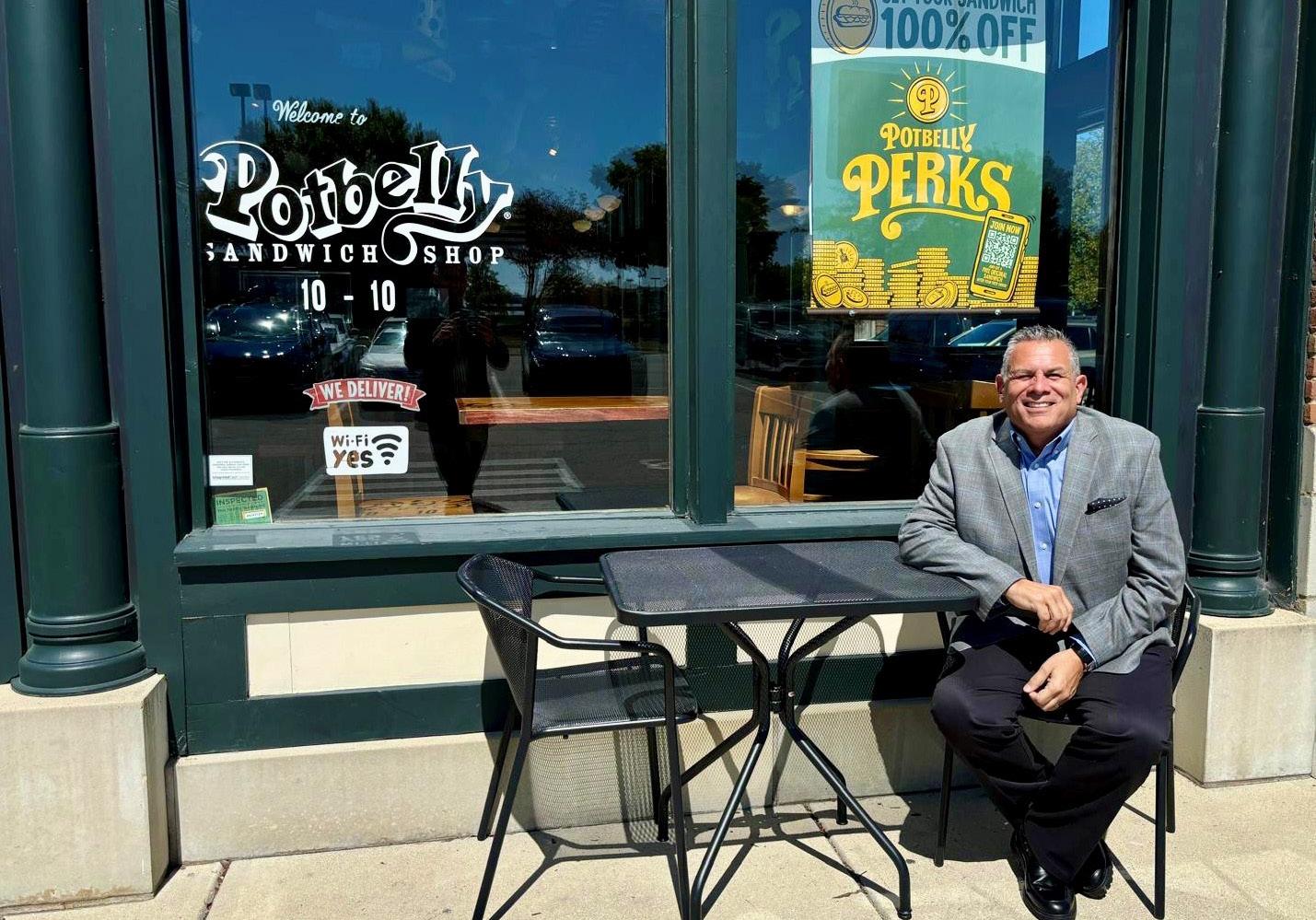
How do you forecast for your business? We look at sales, the number of transactions, and the size of the average ticket. We’ll also look at micro and macroeconomic factors to get an understanding of what’s happening with the economy as a whole.
What are the best sources for capital expansion? Over my career, I’ve used different sources, including banks. There are a lot of banks in the franchise space that understand how franchised restaurants, in particular, work and what the peaks and valleys are. Private equity is another avenue that I’ve used over the years.
Experience with private equity, local banks, national banks, other institutions? Why/why not? We work with groups of banks with experience in the restaurant finance space. We find it beneficial to work with them because they understand the business and our needs. Private equity depends on where you are in the life cycle of your business. It can provide capital and other resources to help with what you need. We’ve worked with private equity in the past, and it can be a good partnership.
What are you doing to take care of your employees? We try to provide competitive pay and different ways for them to access that pay. We offer benefits, and we’re constantly looking to improve upon them and lower the cost. Ultimately, we’re trying to provide a career path for folks so that if they want to put the effort in and they want to grow with us, they have the opportunity to do so.
How are you handling rising employee costs (payroll, minimum wage, healthcare, etc.)? You have to try to be vigilant on costs all throughout the business to help offset some of the rising employee costs. Labor and food are the two largest components, so you have to try to gain efficiencies wherever you can to help address the rising costs. You can’t keep raising food prices to offset the costs. You have to find ways to gain efficiency. So, we’re constantly doing that, and as we grow, we can leverage the costs over a broader pool of restaurants.
What laws and regulations are affecting your business, and how are you dealing with them? You’ve got minimum wage laws
and overtime laws, which are two of the bigger ones. We’ve tried to provide the right pay structure and the right schedule for folks so that we’re meeting the laws, meeting the needs of the employees, and meeting the needs of the restaurant. It’s a juggling act.
How do you reward/recognize top-performing employees? We have bonus incentive programs in place, so if objectives are met, the employees will share in the increase in sales and profits. There are also miscellaneous customer service metrics that they can earn rewards on. We try to do spot rewards: Catch employees doing something right and recognize them. The other thing is just recognition, which I think people in general crave and employees do as well.
What kind of exit strategy do you have in place? We just started last year. My hope is that our business continues to grow and is around for a long time to come.




Written by AMBIKA OBEROI
The U.S. franchising landscape has undergone a significant transformation over the past decade, marked by a notable increase in multi-unit franchisee ownership. Recent data from our franchisee database reveals that there are approximately 42,900 multiunit operators (MUOs) in the country, collectively managing 241,380 units. MUOs now control 56% of all franchised units, highlighting their growing influence within the industry. On average, an MUO today owns 5.5 franchised units, up from 4.9 units a decade ago, reflecting a steady annualized growth rate of 1.1%.
Ownership dynamics have also shifted with franchise transfers increasing at a compound annual growth rate of 4.8% over the past decade. This trend points to an active and fluid market as franchisees buy and sell existing units more frequently than in the past. In spite of the industry’s growth, challenges have emerged, particularly in the QSR sector. Major multi-unit operators of brands like Burger King, Popeyes Louisiana Kitchen, McDonald’s, and Wendy’s have faced financial difficulties with some filing for Chapter 11 bankruptcy. Contributing factors include
rising labor and ingredient costs, stagnant foot traffic, and high interest rates. Moreover, the shift away from city centers due to remote work has impacted sales, especially for locations reliant on office workers and downtown traffic.
Despite these obstacles, large MUOs continue to pursue growth. For example, Tacala LLC, the largest Taco Bell franchisee, recently secured a major investment led by Altamont Capital Partners and other partners, providing the capital needed for further expansion in both the Taco Bell system and new ventures like 7 Brew Drive-thru Coffee stands.
These trends illustrate a franchising market in transition. With a large concentration of multi-unit operators and a rising pace of ownership transfers, the industry is evolving toward a structure favoring scale and consolidation. While economic pressures persist, large operators remain focused on growth, showcasing resilience and adaptability as they navigate an ever-changing landscape.
Ambika Oberoi is director of information management at FRANdata.






NEW YORK-NEWARK-JERSEY CITY, NY-NJ-PA
LOS ANGELES-LONG BEACH-ANAHEIM, CA
CHICAGO-NAPERVILLE-ELGIN, IL-IN-WI
DALLAS-FORT WORTH-ARLINGTON, TX
HOUSTON-THE WOODLANDS-SUGAR LAND, TX
SPRINGS-ALPHARETTA, GA
WASHINGTON-ARLINGTON-ALEXANDRIA, DC-VAMD-WV
MIAMI-FORT LAUDERDALE-POMPANO BEACH, FL
PHILADELPHIA-CAMDEN-WILMINGTON, PA-NJ-DE-MD
BRIDGEPORT-STAMFORD-NORWALK, CT 1,059
FRESNO, CA 1,050
MADISON, WI 1,046
ALLENTOWN-BETHLEHEM-EASTON, PA-NJ 1,013
EL PASO, TX 997
GREENSBORO-HIGH POINT, NC 992
WICHITA, KS 967
CHATTANOOGA, TN-GA 966
ROCHESTER, NY 964
BAKERSFIELD, CA 949
AKRON, OH 946
ALBANY-SCHENECTADY-TROY, NY 936
JACKSON, MS 930
MYRTLE BEACH-CONWAY-NORTH MYRTLE BEACH, SC-NC 925
WORCESTER, MA-CT 913
NEW HAVEN-MILFORD, CT 899
AUGUSTA-RICHMOND COUNTY, GA-SC 887
STOCKTON, CA 879
PALM BAY-MELBOURNE-TITUSVILLE, FL 868
LEXINGTON-FAYETTE, KY 862
DELTONA-DAYTONA BEACH-ORMOND BEACH, FL 856
FAYETTEVILLE-SPRINGDALE-ROGERS, AR 855
TOLEDO, OH 850
LAKELAND-WINTER HAVEN, FL 834
HARRISBURG-CARLISLE, PA 819
OGDEN-CLEARFIELD, UT 818
PROVO-OREM, UT 805 SAVANNAH, GA 790
AL 786
HILL, NC 778 PENSACOLA-FERRY PASS-BRENT, FL 767





(AK, CA, HI, OR, WA)
MANAGEMENT CORPORATION
(AZ, NV, NM)
OF COLORADO SPRINGS/HOLLAND BUERK ENTERPRISES
RESTAURANT GROUP (DRG) 96
(AL, AR, FL, GA, KY, LA, MS, NC, SC, TN, TX, VA)
(CO, ID, MT, UT, WY)
PLATTER 135
ALVARADO RESTAURANT NATION/ALARADO HOLDINGS/PALO ALTO 104 HARMAN MANAGEMENT CORPORATION
(IA, KS, MO, NE, ND, OK, SD) UNITS FLYNN GROUP 489 ROTTINGHAUS COMPANY 285 LOVE’S TRAVEL STOPS & COUNTRY STORES 198 K-MAC ENTERPRISES 177
(IL, IN, MI, MN, OH, WI)
(DC, DE, MD, NJ, NY, PA, WV)
(CT, ME, MA, NH, RI, VT)










Written by Colleen McMillar
As workplaces go, they don’t get much livelier than Altitude Trampoline Parks. From morning until early evening, employees watch as would-be daredevils ride zip lines over foam pits, zoom down slides, and propel themselves through the air to dunk basketballs.
The energetic environment draws 16 to 21-year-olds looking for their first jobs. To be hired, Gen Zers need good communication skills, reliable transportation, and a willingness to be trained. What they don’t need is a resume or more than three minutes to complete an online application. Long applications? Printed applications? C’mon, bruh. As the kids say, that’s just so “cheugy.” (Translation: It’s not cool, man.)
A job application that requires applicants to list work experience can stop them in their tracks, says Sydney Bennett, human resources director for Alpha Management Group, which owns six Altitude Trampoline Parks in six states.
“We have a one-pager asking for their name, contact information, what position they’re interested in, if they know anyone at the company, if they can work weekends. There’s an optional space to put any previous experience they may have had. All of our questions about the person are asked in the interview process,” says Bennett, who, at 26, is also a member of Gen Z. “The application itself—we made it as quick and easy as possible so that these kids are like, ‘OK, I have a chance at getting this job.’ It gives them a sense of hope and interest from the get-go. They actually want to work with us just because of how seamless the application was.”
When it comes to finding, hiring, and training new employees, it’s a different game today than it was in the not-so-distant past—and

Sydney Bennett human resources director Alpha Management Group

Elizabeth Whitby Franchisee Hand & Stone Massage and Facial Spa
not just when it comes to young workers. New technology tools are constantly emerging that help businesses reach an expanded pool of candidates, onboard quickly, standardize training, and build employees’ skills, which can aid in worker retention.
“Technology has been instrumental in navigating the recruitment process by facilitating the flow and depth of the information we receive beyond a resume, and this has been critical for us in our hiring processes,” says Elizabeth Whitby, who owns six Hand & Stone Massage and Facial Spa locations in Florida. “We can now reach candidates who may be a good fit and connect with them in real time to schedule interviews and have those discussions in less time than it used to take to recruit new hires.”
Finding the right employees is key to any business’ success, but it can be a time-consuming endeavor. Technology is helping to streamline the process. Franchisees can take advantage of online job boards, automated interview scheduling, application tracking systems, and other tech tools.
Tech also makes it easy for candidates to apply and get updates on the status of their applications. Once a candidate is hired, the real work begins.
To increase the chances that both newly hired and existing team members are successful at their jobs, Altitude Trampoline Park has partnered with Schoox, a virtual learning platform, to develop a native mobile training app that replaces desktop learning. The platform allows Altitude’s employees to have easy access to training as well as safety and compliance information. It also gives franchisees a deep understanding of how top-tier training can
Technology has been instrumental in navigating the recruitment process by facilitating the flow and depth of the information we receive beyond a resume, and this has been critical for us in our hiring processes."
translate into guest satisfaction, membership sales, and incident reduction.
“This learning management system is a really great way to create a professional standard,” Bennett says. “For a lot of these kids, it’s their first job, and it’s a great way for them to be molded into living our culture, breathing our culture, encouraging others to join the culture of Altitude. The LMS has been very successful so far. We’re able to look back on it for accountability. We’re able to institute new training. As we’ve come to find out with all the different technologies we’ve tried, it is very important for this younger generation to have a great user experience. If it looks difficult to navigate, they’re less motivated to want to do it. So, we work very closely with corporate to ensure that the training is done in the most efficient and effective way possible to where the kids are set up for success on their first day.”
Altitude, an 11-year-old brand, turned to Schoox because company leaders wanted to foster a culture of ongoing education and development across a system of nearly 100 parks.
Multi-unit franchisee Tim Kurtz and the Alpha Management Group opened their first Altitude Trampoline Park in North Carolina in 2019 and have since spread to Wisconsin, Colorado, Illinois, Pennsylvania, and Texas. They were named a 2023 Franchisee of the Year by the International Franchise Association.
When a company invests in good training technology, both hourly team members and managers are more likely to succeed and to stay, Kurtz says. The partnership with Schoox has led to improved guest experience scores across all locations. Franchise owners also say they’ve seen increased employee engagement and reduced turnover.

Tim Kurtz Franchisee Altitude Trampoline park
“It’s enabled us to run the business more clearly, to replicate the business, and, quite honestly, to grow the business to multi units,” he says. “We have great people working within our system, but they need the technology. From an HR standpoint, we can onboard people digitally quickly. When we’re doing evaluations, when we’re moving team members, when we’re giving raises, whatever it is, everything is technology based now, and it’s really helped us.”
Many workers want to be sure they are getting more out of a job than just a paycheck. The company’s culture is key as is a feeling of accomplishment.
“More potential team members are interviewing companies as opposed to companies interviewing potential team members,” Kurtz says. “They want to work for great companies that have a proper road map for them to succeed if they’re in it for the long term.”
Hand & Stone Massage and Facial Spa recently launched a learning management system. The brand also uses Zenoti, which specializes in software for beauty and wellness brands.
The LMS offers educational lectures and advanced training courses aimed at reducing the steps needed to complete continuing education credits. The public platform is accessible to all licensed massage therapists, not just the brand’s employees.
It's enabled us to run the business more clearly, to replicate the business, and, quite honestly, to grow the business to multi units."
“The main theme for us as a brand has been to modernize with the times,” Whitby says. “Implementing and embracing new, modern tools is just one way we have optimized our customer experience. The LMS platform is also another example of how Hand & Stone is using technology to break ground and contribute to the advancement of the industry, and it has been exciting to see it roll out.”
For a while, the pandemic made it difficult for some companies to hire and keep good employees. The landscape is different today, says Brian Wise, chief operating officer for Freddy’s Frozen Custard & Steakburgers, which has more than 500 locations in 36 states.
“Employment continues to improve,” Wise says. “The vast majority of our locations across the system are well staffed. It’s something we track and work with our franchisees on.”
Freddy’s uses software that allows job candidates to schedule their own interviews at their convenience. He says the brand’s franchisees have excelled when it comes to retention.
“Turnover in the industry—when you really look at it, people rarely leave the industry. They are typically leaving a situation. That’s when how a franchise is run comes into play,” Wise says. “We ask: How do we help our restaurants execute every single day at a premium level, and how do we help our management and team members?”
Freddy’s leadership team has found that the more the company invests in training, the more it increases employee satisfaction levels. Recently, Freddy’s opened a Training and Innovation Center in Wichita, Kansas. The 23,000-square-foot center features cutting-edge equipment and technology. There’s a simulated Freddy’s restaurant for handson training, and virtual training sessions are also available.
The center “allows us to really put top-notch training out to our employees, managers, and franchise owners on how to operate the business,” Wise says. “In a climate where operations continue to evolve, sometimes on a weekly basis, brands that can update and get training out there have an advantage.”
Technology tools have allowed Rock N Roll Sushi’s managers to focus on elevating the customer experience, says Craig LeMieux, the brand’s CEO.

Brian Wise chief operating officer Freddy's Frozen Custard & Steakburgers
Rock N Roll Sushi has 71 locations, primarily in the Southeast, and is expanding to other regions. The company uses 7shifts, a team management platform, for hiring and onboarding. For training, the company uses Jolt, which makes software for smartphones and tablets.
Applications come in “almost exclusively online,” LeMieux says. “We will definitely take an application from someone who walks through the door, but it’s primarily online. The job candidate wants that. The manager wants that. An applicant walking in kind of disrupts our main priority of servicing customers. It’s always more efficient when you can schedule time versus the random drop-in.”
The restaurants also use online platforms to extend their reach. Brand leaders are aware that the design of help-wanted ads can make a huge difference in how the company is regarded.
“You want to get the attention of potential employees. Every day, there are more and more options for the employee. Therefore, you’ve got to step up your game, and you’ve got to be different,” LeMieux says.
Once they find a promising applicant, Rock N Roll Sushi managers know they must act quickly, he says.
“In the past years, the interview process was done on set days throughout the week. Those days are gone,” he says. “It's mandatory right now that, once an application comes in, we’re responding that day because in many cases if you wait a few days, the applicant will already be employed by someone else.”
With 7shifts, the transition from applicant to employee is fluid, and not much administrative work is required from restaurant managers.
“It’s taken that process from the employer to the employee, which benefits both sides.

(ALL STORES... NOT JUST THE TOP QUARTILE)

8-hour operating day 50% royalty reduction for first 2 years (for area development agreements signed by 12/31/24) $2.7

*18 of the 33 Restaurants operating for a full year 2023 met or exceeded this figure. Your results may vary. See our FDD, Item 19 for definitions and other detail.


We will definitely take an application from someone who walks through the door, but it's primarily online."
Rather than getting all of their information on an application and then transferring it onto a computer database, the employee now completes that once, and it’s done,” LeMieux says. “Getting signed up for direct deposit, ensuring we have the correct bank account number—the employee is able to do all that from home. It’s a convenience that today’s job seeker expects.”
When it comes down to it, employers must use modern tools to meet potential employees where they are. Rock N Roll Sushi and other franchisees understand that change is necessary.
“I’m from a generation that did everything with pen and paper, but for later generations, tech is what they grew up on,” LeMieux says. “If you don’t have these technologies, you’re not going to attract these applicants. This is how they are used to communicating. They’re used to doing everything on their phones. The more technology we use that they can access right on their cell phones, the better.”

Craig LeMieux CEo rock n roll sushi










Branching out with new brands and different sectors
Written by M. SCOTT MORRIS
The oft-repeated phrase, “Don’t put all of your eggs in one basket,” has survived the centuries because it points to a universal truth about business.
At the basic level, diversification spreads the inherent risk of doing business and, if done right, can smooth out the tumultuous ups and downs that can roil the marketplace. Branching out with new franchise brands creates fresh challenges while also providing opportunities to develop operational abilities and leadership skills.
Diversification makes good sense as a business strategy, but to use another cliché, “The devil is the details.” In other words, which specific eggs should go into which baskets?
The following multi-unit and multi-brand operators decided to move forward with new brands and possibilities.

RAY HARRIGILL FOUNDER AND PRESIDENT OF SUNRAY COMPANIES
One business wasn’t enough for Ray Harrigill to achieve the freedom he wanted. “It can be very fulfilling but also very restrictive to be a small owner-operator of one small business,” he says. “While you can make a salary, it’s hard to take time off. It’s hard to do other things because you’re kind of tied to the business all the time.”
Before becoming founder and president of Sunray Companies, Harrigill studied business and worked for his father-in-law, Dr. S.L. Sethi, a multi-unit and multi-brand franchisee who got his start in 1973. Diversification was built into Sunray’s DNA.
Sunray owns and operates seven hotels, including Hampton Inn, Hampton Inn & Suites, Holiday Inn Express & Suites, and Home2 Suites. The portfolio also includes 19 Palm Beach Tan units, 13 Massage Envy clinics, and three My Salon Suite locations. All of Sunray’s businesses are in Mississippi and Louisiana. He’s in an enviable position now, but it took years to grow his business and develop the talented team at Sunray. Early in his multi-brand career, Harrigill took pay cuts when hiring new team members.
“Over time, you hope that you can do more because you have different people doing different things, and it works together,” he says.
“For me, it’s also a feeling like you’re making an impact on the world by giving other people more opportunity. That’s important. How can we help our people grow?”
Having the right team in place means he can focus on looking for new ventures. He attends con-
ferences, including Franchise Update Media’s Multi-Unit Franchising Conference in Las Vegas, and talks with franchisees and franchisors. “We’re always asking, ‘Hey, what’s working? What’s not working? What do you see? What don’t you see? What challenges do you face in the business you’re in?’” Harrigill says.
When considering a new brand, it needs to be scalable, and the right fit is important. The business needs to earn enough to provide a good living for the people working there while also generating a profit for Sunray. That might sound like a no-brainer, but not every business meets the threshold.
“We’ve entered a business and failed, and we got out and said, ‘Okay, that didn’t work for us for whatever reason,’” he says. “If we can’t make it work, we can’t make it work.”
When Harrigill finds another brand to add, he doesn’t decide by himself. His wife, Monica Harrigill, managing member and co-founder, and other team members provide their input.
“They have good opinions,” he says. “They’ll say, ‘That’s a good idea,’ or ‘Hey, I don’t know.’” In addition to freedom and the opportunity to provide secure livings for himself and others, Harrigill has another reason to diversify his business: It shakes things up.
“It’s invigorating to go back and start another concept because I have to learn a new business, and I have to learn the language of that business,” he says. “It’s always exciting to start something new because it gives me fresh wind.”

WES SNYDER MULTI-BRAND FRANCHISEE

Wes Snyder of Fishers, Indiana, wanted to leave the corporate world, so he purchased a Fastsigns franchise in 1999 after his oldest daughter was born. He liked that it was a B2B business that allowed him more free time with his family than he might have had with a QSR business.
“There are about 700 Fastsigns nationwide. We built ours into one of the seven or eight biggest ones in the network,” Snyder says. “In the fall of 2016, my oldest daughter was a senior in high school, and I just kind of had this feeling that it was a great business—I loved the business—but I just had this feeling that that wasn’t the last thing I was ever going to do.”
He kept equity in the business when he sold it. He also retained his appreciation for Fastsigns and its parent company, Propelled Brands. A couple of years after the sale, he and his business partner, Jeff Parsons, developed a new approach for investing in Fastsigns locations. They look for general managers who want to become owners.
“Maybe they’re financially qualified from a bank standpoint, but they’re not financially qualified by the franchisor,” Snyder says. “We’ll partner with them. We’ll give them some equity up front.”
He says franchising continues to provide a comfortable living for his family. It also gives him the ability to affect other people’s lives in positive ways.
“Franchising allows us to partner with some good people, to really build leaders, and to give people, who maybe otherwise wouldn’t have the opportunity, a path to ownership,” Snyder says.
He has seven Fastsigns locations in his system. He didn’t have a plan to diversify, but a broker approached him about Pirtek locations in Indianapolis. The company makes hydraulic hoses.
“It’s an industrial franchise, B2B, and there’s not many of those around,” Snyder says. “It made sense.”
He now owns five Pirtek units, and he’s also developing another brand. “I wish I could say I had this all planned out, but it’s really more happenstance than anything,” he says. “Once Propelled Brands bought My Salon Suite, it just made a lot of sense.”
My Salon Suite became his third brand, and he owns four locations. Snyder says he’s still interested in expanding his business in other ways, but the details have to be right. When checking out a fresh opportunity, he takes a firsthand approach.
“I’ve got to really do my market research,” he says. “What are the businesses there that would be buying my product? Are there enough that are going to support this territory?”
Research might start on the Internet, but he drives or flies to potential locations. “I’d much rather go to the market and drive around to see what’s there,” he says. “I actually put my own two eyes on it, talk to people, and figure out really what’s going on.”
ZACH ROGERS OWNER/FOUNDER, ROGERS RESTAURANT GROUP
When looking to expand in the restaurant business, relying on the sense of taste makes good sense. Zach Rogers and the team at Rogers Restaurant Group were looking to diversify beyond their 16 Fuzzy’s Taco Shop locations in Colorado.
“I love breakfast and brunch, and my dad does too,” says Rogers, the group’s chief development officer. “A space next to our Fuzzy’s Taco Shop in Fort Collins opened up, and it was previously a breakfast location. We thought, ‘What better than to put a breakfast concept in there?’”
Their research led them to Another Broken Egg Cafe, and Rogers Restaurant Group entered into a five-unit deal to develop the brand in Fort Collins and beyond.
Nostalgia and business sense also led the company to purchase a pair of Newk’s Eatery locations. When Rogers was born, his father operated a Schlotzsky’s Deli in Texas. Some of his earliest memories include running around the kitchen.
“We looked for a sandwich shop. I love sandwiches. They’re one of my favorite things to eat,” he says, “so that’s kind of how we decided to get into the Newk’s Eatery. We wanted to diversify.”
Rogers Restaurant Group also agreed to a 10-unit deal to develop Bobby’s Burgers by Bobby Flay locations in Colorado, and another deal will result in 15 Fuzzy’s stores in the Phoenix area. The company also owns Mash Lab Brewing, an independent restaurant and brewery.
“We’re growing. We’re not super huge, but we have a decent number of restaurants at the

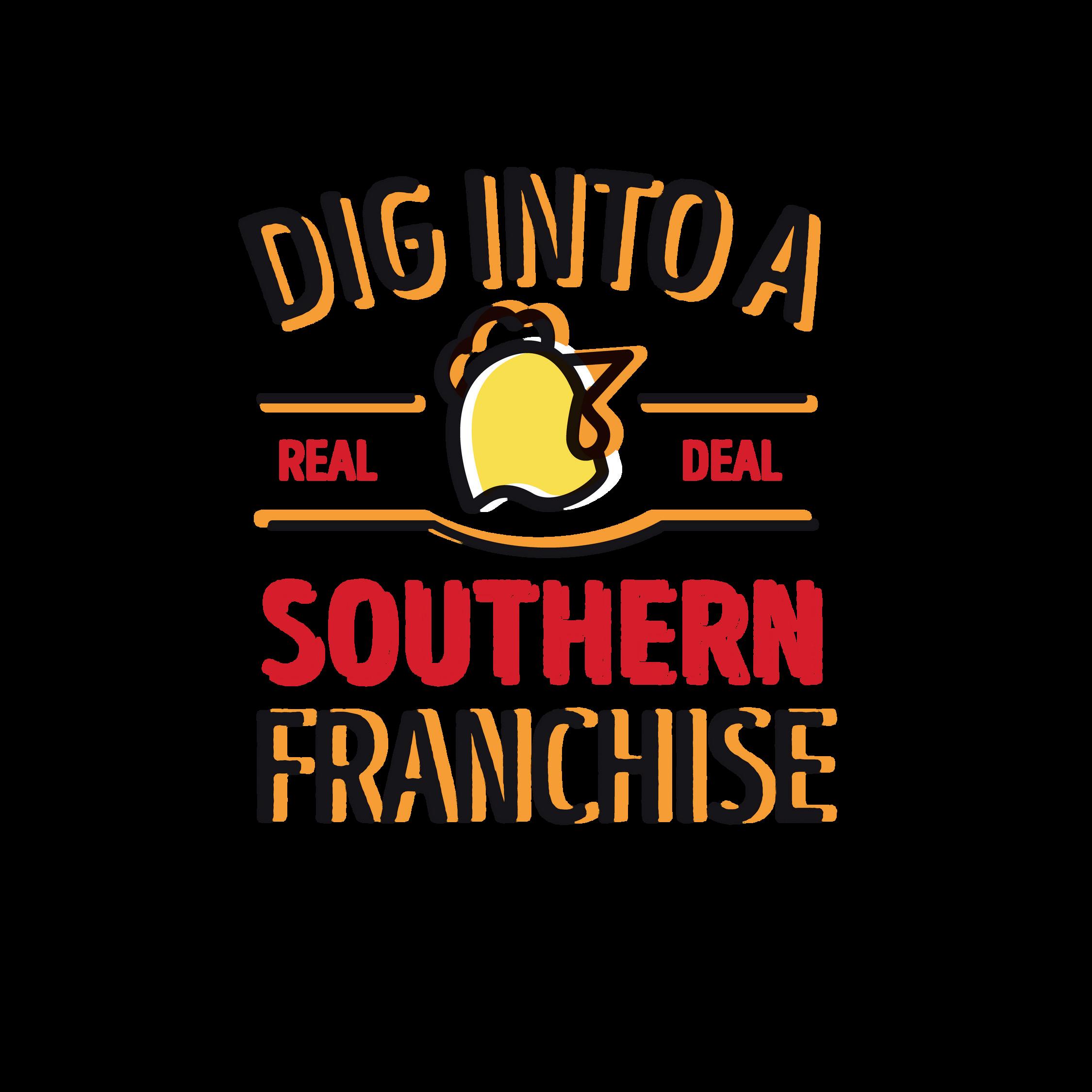
Since our inception in 1977, we've expanded into multiple markets, introduced an
boneless
and

our kitchen operations. We’re a growing chicken franchise seeking experienced business owners and restaurant operators to grow with. Let’s bring Bojangles to your community!













CHRIS PARET MULTI-BRAND FRANCHISEE
moment,” Rogers says. “I would say that most of the decisions we’ve made to diversify are based on saying, ‘What do we like as guests?’”
Most of the restaurants are in Colorado, and both franchisees and franchisors have taken care to make sure none of the businesses pull customers away from the others. “Part of the philosophy that we have is to not try and compete with existing brands,” he says. “Technically, you can’t do it in terms of noncompete agreements.”
The management team also sidestepped the competition issue by picking different segments.
Another Broken Egg Cafe’s ambiance is nothing like what Fuzzy’s offers. If someone wants a burger, they can go to Bobby’s Burgers. If they want a sandwich, they can go to Newk’s.
“That was part of our philosophy and how we decided to diversify,” Rogers says.
There’s a bonus to operating with different franchise companies. After the team at Newk’s helped negotiate rates with third-party platforms, Roger Restaurant Group reached out to Fuzzy’s for similar assistance.
“We have the luxury of being a part of four brands,” Rogers says, “so I have the benefit of picking four different companies’ brains and then using that information however I see best for my company.”
Taste and personal preference helped guide Rogers to specific brands, but the main driver was to reduce uncertainty.
“If I only have Fuzzy’s, and Fuzzy’s goes through ups and downs, that’s the only thing I have to ride,” he says, “but maybe I can counter it with these other brands.”
When Chris Paret was ready to leave his day job and become his own boss, he went with a well-known national brand.
“I was trying to find something that was local in State College, and at the time, there were three Subway franchises for sale,” says Paret, a Pennsylvania resident, “and so I explored that opportunity further and made the crazy decision to quit my job and go in on three Subways.”
That was in 2017. At the time, he had limited restaurant or franchising knowledge. His parents had operated a Bonanza, but that was a long time ago. He’d also done a little restaurant work in college. To adjust to his new life, he hired a pair of experienced managers to train him in the business.
“I said, ‘I’m taking this risk. I would like to have people who know what they’re doing to be involved in the store,’” Paret says. “They continued to work for this other person, but I paid for their services to help train me.”
Subway also provided a playbook to help develop Paret into a successful operator. After adapting to the restaurant business and developing a management infrastructure, he decided to expand. In 2020, he bought four more Subways.
“The previous owners didn’t want to deal with the hassle and headaches of the pandemic,” he says, “and I knew eventually it would go away, so I just wanted to take the risk.”
One of the stores never recovered from Covid-19 and had to be shut down, but Paret was dedicated to expanding his portfolio.
“I was looking at additional Subways but was struggling with the labor challenges that we have in this market,” he says. “When I was looking at other opportunities, I was looking at ones that didn’t have employees, and so that’s what attracted me to My Salon Suite.”
He’d considered the company before the pandemic, but the timing wasn’t right. When the opportunity came around again, he and a business partner built two locations. In two and a half years, Paret put 55,000 miles on his Tesla as he traveled to his different businesses.
“I live where two of my Subways are located. The other four subways are about an hour away, so I’m able to go up there once a week,” he says, “and I’m able to visit the My Salon Suites once a week, so I really only have two trips a week. But they’re in complete opposite directions.”

Paret doesn’t manage people at My Salon Suite. He rents space to beauty professionals. If they don’t show up for work, that’s their problem. But it’s far from a cold-hearted relationship. While working for others and then for himself, he learned how to run a business, and he’s happy to share with those who want to learn.
“This is their opportunity to become a business owner,” he says. “I’m helping people become entrepreneurs.”

JOSHUA & ASHLEY RODGERS CAMP BOW WOW FRANCHISEES
Joshua and Ashley Rodgers started investing in real estate while working at their corporate jobs in the Kansas City area. After the birth of their second child, she went home to look after the children and oversee their two, three, and four-unit apartment complexes.
Real estate looked like a solid investment for the long term, but the upheaval of Covid-19 brought unexpected challenges. “When things were starting to shut down, we would get messages from tenants obviously concerned,” she says. “They’d say, ‘Hey, I saw on the news that people don’t have to pay rent right now.’ And we were like, ‘Well, we still have to pay our mortgages.’”
There was talk at the time about potential regulations on rental property. New rules never materialized, but real estate lost its luster.
“We didn’t feel comfortable moving forward and growing in that space any longer,” Joshua Rodgers says.
His wife had a Facebook friend who ran a Camp Bow Wow. Before the pandemic, she suggested opening a franchise. Besides, they had three dogs and didn’t have a good place to board them in their area.
“I’m like, ‘Man, we need a Camp Bow Wow, Josh,’” she recalls, “and he’s like, ‘You’re crazy. You’re crazy.’ This was 2018, I believe.”
They visited her friend’s business and started boarding their dogs there. Joshua Rodgers
agreed that it would be a solid business. They met with corporate but decided the opportunity wasn’t right for them.
“We actually decided to purchase an Airbnb in Florida instead of doing our first Camp Bow Wow,” she says.
“We didn’t know short-term rentals, but we knew we could figure it out quickly,” he says, “and it would be a lot easier to figure out than going into a new business with employees, payroll, and everything else.”
Then came Covid-19 and the rent issues. They met with the Camp Bow Wow corporate team again in June 2020, and the territory they’d discussed two years earlier was still available.
“It’s in our backyard, basically,” Joshua Rodgers says.
Building materials were expensive during the pandemic, but they opened for business in April 2022. It turned out that they were filling a serious need. “Within five weeks, we broke even,” he says. “I think we broke the corporate record on the fastest camp to break even.”
They sold many of their real estate holdings and invested the money into growing the business. They have two locations in the Kansas City area and also purchased three units in Colorado. In June of last year, Joshua Rodgers stepped away from his corporate job to focus on Camp Bow Wow.
While the Camp Bow Wow business is doing well, the pair recently sold the last of their rental properties. In effect, their eggs are back in one basket, so it’s time to diversify again. They’ve talked with multiple franchisors in the health and beauty space and expect to expand with a new brand. They’re also taking multiple steps to meet whatever the future holds.
“I’m working on getting my pilot’s license right now, and we’re going to end up buying a plane eventually,” Joshua Rodgers says. “That’s going to provide another level of freedom that we didn’t have before, where we could just fly to our locations and check in on them quickly. It also expands the investment opportunities in other states and other markets. It’s going to be interesting.”

Usually, diversifying is a business decision. For Tom McGwire, it was also a family decision.
“My parents met at a conference for family businesses,” McGwire says. “My mom was there from Honey Baked Ham, and my dad was a third-generation owner of a manufacturing business that my great-grandfather started in 1921. He invented a product called the ceramic band heater.”
Industrial Heater Corp. in Connecticut makes parts for companies that build plastic components. It still makes the ceramic band heater, but that's a relatively small part of the business.
McGwire started doing assembly work on the production floor when he was 16. He went away to college, came back for a sales role, went away again, and returned to become the owner and CEO.
His family also has an ownership stake in Honey Baked Ham, which was started by his great-grandfather on his mother’s side. Multiple family members have been franchisees.
“It’s not very popular in New England. It’s kind of ubiquitous in the Midwest, down South, California, and some places,”
McGwire says. “I would always be at my family’s house out in Michigan, and they’d have it in the fridge all the time. They’d always be talking about it, trading war stories. I’d go home to Connecticut, and I’d tell my friends about Honey Baked Ham, and they didn’t really know about it.”
An uncle brought the franchise to New England, but it hasn’t developed in the region as well as it has in other parts of the country. McGwire felt like something should be done.
“I was inspired at a shareholder meeting, and I said, ‘How can I help?’ I wanted to do my part and grow the brand in New England,” he recalls.
He’s the managing partner of Red House Connecticut, which bought two stores in Connecticut and then a third in New Jersey. A fourth restaurant is under construction in Rhode Island and is expected to open by the end of the year. The plan is to develop a total of 10 Honey Baked Ham units.
Management and leadership skills carry over from Industrial Heater Corp. Food service and manufacturing are both regulated industries, so that wasn’t a surprise, but there’s been a learning curve to go from B2B to B2C.
“The standardization within the franchise system, I think, makes this business model easier to adapt to for an entrepreneur,” he says. “In my manufacturing business, I can’t call my competitor and ask him for his P&L. I can’t ask them how much they’re spending on labor. But in the franchise system, we have a whole network of stores that are successful.”
He also has the benefit of a solid team. In addition to the experienced employees who came with the stores Red House Connecticut bought, McGwire has family members around the country who know what it takes to successfully operate a Honey Baked Ham restaurant. He also has his dad and brothers to contribute, and his fiancé does bookkeeping and accounting for both of the family businesses.
“It always comes down to people,” he says. “All businesses are hardworking people who come in every day and do a good job.”
Now that he’s at the helm of two family legacies, McGwire doesn’t anticipate adding more brands. It’s time to focus. “We have a lot to accomplish up here that we’ve committed to,” he says. “I’m not going to waver from that until we’re done.”
Just like a well-balanced investment portfolio, a diversified franchise portfolio can significantly reduce risk and enhance longterm returns. Sure, a single franchise brand can be rewarding, but relying solely on one brand exposes you to the potential pitfalls of economic downturns or other industryspecific challenges.
• Risk mitigation. Diversification helps protect your investment by spreading risk across multiple industries and brands.
• Market reach. Targeting noncompeting brands and complementary businesses allows you to tap into new customer segments and expand your market reach.
• Revenue stability. A diversified portfolio can provide a more stable revenue stream even during economic downturns.
KEY STRATEGIES
• Noncompeting brands. You’ll want to avoid adding franchises that directly compete with your existing businesses (many brands forbid it anyway) to maintain a strong market position.
• Complementary businesses. Look for brands that can complement your existing offerings, creating synergies and attracting a wider customer base.
• Industry diversification. Consider franchises in different industries or sectors to hedge against economic downturns that may impact specific sectors.
• Food, non-food, emerging, legacy. There are risks, rewards, opportunities, and challenges throughout these different sectors and brands. For example, emerging brands could include the risk that the brand won’t survive. But legacy brands can be more expensive with fewer territories available than emerging brands.
• Similar operational models. Owning franchises with similar operational models can leverage your existing expertise and infrastructure.
• Geographic expansion. Identify available markets within your existing footprint to build synergies and leverage your local knowledge.



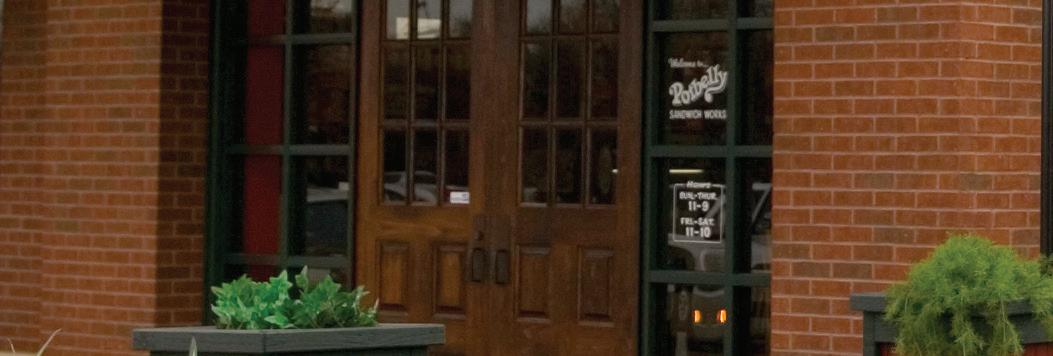
















Written by JOHN DIJULIUS
An article in Fortune, titled “Nearly All Bosses Are ‘Accidental’ With No Formal Training—and Research Shows It’s Leading One in Three Workers To Quit,” shares research conducted by the Chartered Management Institute (CMI) revealing that many of those promoted into managerial positions are all title and no training. These startling findings revealed one in four people in the workforce have management responsibilities, yet very few have been trained to do their jobs. CMI’s research found that an incredible 82% of bosses are “accidental managers,” and what’s even scarier is that 25% of those are in senior leadership roles. This negatively effects employee morale, and a third of employees are quitting their jobs.
Employees in the survey who said their manager is ineffective feel seriously less satisfied, valued, and motivated in their jobs than those who described their managers as effective. In addition, 50% of employees who reported being unhappy with their manager said they plan to quit within the next year.
Employees are not the only ones with low morale. Many of these accidental managers were high-performing employees before being promoted without receiving any leadership training. According to CMI’s research, managers aren’t confident in their own leadership abilities with many struggling when it comes to dealing sensitively with the multiple issues facing their team members at work and in their home lives.
Does your organization have a leadership development program that helps attract and prepare key employees who have the potential to be great leaders of your company?
As growth guru Stan Slap says, “When your company says you want your employees to be leaders, what that really means is that you want
their emotional commitment to your vision. A leader’s emotional commitment is about taking on the company’s success as a personal crusade.”
The key is to replicate that entrepreneurial spirit, instilling it into the leadership philosophy of the next generation of leaders who will rally their teams around the company’s cause. This is much easier said than done, but it remains the biggest differentiator in the most successful organizations. If your leaders are not infused with that energy, your employees never will be.
Building a great internal culture and leading the employee experience revolution starts with developing your high-potential employees into great leaders, making your existing leaders better, and creating an emerging talent pipeline for the next generation of exceptional leaders in your company.
Emerging leaders need to be taught what success looks like. Leadership development starts with having great leaders modeling the behavior. Demonstrating success is inspiring others to achieve more than they thought possible, serving them so that they can, and celebrating them when they do. Leadership is about making other people better because of your influence.
“The emotional commitment of your leaders is what solves problems that are unsolvable, creates energy when all of the energy has been expended, and ignites emotional commitment in others, including your employee culture,” Slap says.
People first
New and existing leaders tend to focus heavily on results. Why? Because all their incentives are tied to them. Too many leaders had bad role models early on in their careers. The managers they worked for led by fear and intimidation,
only focusing on productivity and top and bottom-line results, often at the expense of the teams they managed.
Those in leadership roles need to strike a balance between getting results and being understanding and empathetic with employees to get their buy-in emotionally and physically. While it can be difficult to plan and focus on leadership training when many are in a hiring crisis, now is the time for organizations to focus on developing great leaders. It is never too early to start preparing an employee who has leadership potential.
The single most important determinant of an individual’s performance and commitment to stay with an organization is the employee’s relationship with his or her immediate manager. As stated in a McKinsey & Company article, “The Boss Factor: Making the World a Better Place Through Workplace Relationships,” improving a worker’s job satisfaction can be the most important thing a leader can do.
“Few managers realize what a dramatic impact—either positive or negative—they have on the world through their everyday behavior,” according to the article. “It is the responsibility of senior leaders to enlighten them and provide the organizational context that consistently fosters high-quality relationships between bosses and the people who report to them.”
“Human-centric”
Leaders and employees alike tend to thrive when a shared commitment to excellence is part of the job experience. In the digital revolution, human interaction, compassion, empathy, and communication skills become premium advantages. It’s time to consider an entirely different approach: building human-centric employee experiences by genuinely caring about your people. Get to know your employees. Humanize them, and humanize yourself .
John DiJulius III, author of The Customer Service Revolution, is president of The DiJulius Group, a customer service consulting firm that works with companies, such as Starbucks, Chickfil-A, Ritz-Carlton, Nestle, PwC, Lexus, and many more. Contact him at 216-839-1430 or info@thedijuliusgroup.com.





Written by MARY LOU ATKINS
In today’s competitive job market, attracting and hiring top talent is essential for your business to succeed. To stand out and find the right candidates, it’s crucial to adopt a diverse strategy for finding the best employees for your business.
Here are some strategies and tools that can help you more consistently and effectively find and hire the kind of talent that you need to get to the next level.
Simplify the application process by allowing candidates to submit their applications via text message. In seconds, candidates can apply by texting a unique code to your company. Consider incorporating short video introductions to get a more personal glimpse into their qualifications.
Make it easy for applicants to apply by providing QR codes that can be scanned directly from their smartphones.
Customize and design hiring posters with all methods for applying and post them online, at your company, and throughout your community.
Tap into your existing network by incentivizing employees to refer qualified candidates. A well-structured referral program can lead to high-quality hires and even boost employee morale.
Build SEO branded career pages that host and post all of your job openings to job boards. Share your job postings or career pages on your social media platforms. Use social media platforms to promote your open positions and engage with potential candidates. Create compelling content, optimize your career pages, and participate in relevant online communities.
Establish your hiring criteria for each role that will automatically move qualified candidates to the interview stage.
Employers who interview candidates the same week they apply have a greater chance of making a successful than those who wait. Use scheduling tools that will share your availability for the candidate to pick the time and day that works for them. Applicants schedule their interviews based on the availability that you and your team set. This will free up your team’s time since they will not have to spend time scheduling that interview. Designate whether the interview is via phone, in person, or through video.
Use software that automatically sends candidates a text message prompting them to schedule their interviews. Set up automatic email and text reminders to reduce no-shows. Set interviews to be as long as you need based on your hiring process. Need additional interviews? Adjust your process to include multiple interview stages.
Today’s AI can automate responses to every candidate, screen them, answer questions throughout the hiring process, and set up interviews. Every candidate can have a unique, personalized AI conversation to create a seamless candidate experience.
As long as you run a business, finding top talent will remain a challenge. Increase your odds of finding the right fit for your organization by keeping these suggestions in mind:
• Candidate experience. Prioritize a positive candidate experience throughout the hiring process to attract and retain top talent.
• Diversity and inclusion. Foster a diverse and inclusive workplace by actively seeking candidates from various backgrounds and ensuring your hiring practices are fair and equitable.
• Continuous improvement. Regularly evaluate your hiring strategies and make adjustments to optimize your processes and attract the best talent.
By implementing these strategies, you can create a diverse, efficient, and effective hiring process that attracts top talent and improves your company’s overall success.
Mary Lou Atkins, sHRBP, is the vice president of human resources at Chicken Salad Chick. She is a seasoned and strategic HR executive with 40-plus years of experience in the restaurant industry. She is skilled in talent and performance management as well as employee relations. She joined Chicken Salad Chick in 2019 as human resources director after previously holding various positions within operations, training, and HR at Popeyes Louisiana Kitchen for 35 years.





Written by MATT HALLER
In early September, less than two months before an intense presidential election, more than 350 franchisees, franchisors, and suppliers descended on Washington, D.C., for the International Franchise Association’s (IFA) annual Advocacy Summit. This is the one time a year when members of the franchise community take their priorities and concerns directly to those who pass federal laws that affect their day-to-day business. More importantly, they share their stories personally with the people who need to hear them.
This year, there is no shortage of topics in Washington with a significant impact on franchising. Ahead of the election, franchising has made major national news with Vice President Kamala Harris touting her time working at McDonald’s. I recently highlighted in the Wall Street Journal the ways that lawmakers and candidates should use this moment to proactively support our business model and change course from some of the harmful policies of the past.
Just as franchising knows no political bounds or allegiance, policies that promote the continued growth and fair treatment of the business model enjoy support from both political parties.
Atop that list, and a continued priority at the Advocacy Summit, is lingering uncertainty around the future of joint employer. With this year’s bipartisan vote on H.J. Res. 98 to overturn the National Labor Relations Board’s (NLRB) expanded joint-employer rule, the entire Congress—for the first time ever—is on record either for or against our most critical issue.
We took this opportunity to thank our champions who stood with us on joint employer and express our disappointment with those who chose a different course. We expanded these efforts through our newly formed Coalition to Save Local Businesses organization with advertisements educating constituents about this issue. Our message is unequivocal: Should the NLRB implement an expanded joint-employer standard, the franchise model and all the good it has created for so many would be imperiled. Fortunately, an IFA-led lawsuit stopped the proposed joint-employer rule from taking effect.
Other issues at the Advocacy Summit included the debate over important provisions of the 2017 Tax Cuts and Jobs Act set to expire at the end of 2025. It’s a tax cliff that could lead to significant tax increases on small businesses if it is not addressed. Advocates urged members to support three specific provisions critical to franchised small businesses.
First, we called for a permanent extension of Section 199A, which allows for a 20% deduction of qualified income for pass-through businesses. Most franchised businesses are structured as pass-through entities, and this section promotes equity in the tax code between small businesses and large corporations whose tax cuts were made permanent in the original bill.
Second, we stressed the importance of the restoration of 100% bonus depreciation, a tax incentive aimed at increasing business investment by allowing companies to accelerate the depreciation of qualifying assets, such as equipment, rather than write them off.

Finally, we pushed for a permanent reauthorization of the Work Opportunity Tax Credit (WOTC) to encourage businesses to hire and retain marginalized workers.
Outside of Washington, we have also provided opportunities for franchisees to engage in the tax debate through field hearings with members of the House Ways and Means Committee, the key tax-writing committee in Congress. Fastsigns and Sport Clips franchisees participated in a field hearing with U.S. Rep. Lloyd Smucker, R-Penn., and Express Employment Professionals staff joined U.S. Rep. Terri Sewell, D-Ala., in Alabama.
While we don’t know what next year’s tax debate will bring, especially with the makeup of Congress yet to be determined, we are making strong inroads with lawmakers ahead of these major decisions, ensuring they keep franchised businesses front of mind as they write new tax laws.
Just as the franchise community is staying front and center in the policy debate, we are also staying engaged with both political parties to ensure IFA and our members have a seat at the table regardless of the election’s outcome. Over the summer, IFA had a major presence on the ground at both the Democratic National Convention in Chicago and the Republican National Convention in Milwaukee.
Franchises welcome the support of any candidate who champions their priorities. As the oldest and largest trade association representing franchising, IFA works to protect, enhance, and promote the franchise business model worldwide. In the lead-up to 2025, we will continue working with lawmakers on both sides to achieve our priorities so that the model will continue to thrive and generate opportunity around the U.S. and beyond.
Matt Haller is president and CEO of the International Franchise Association.
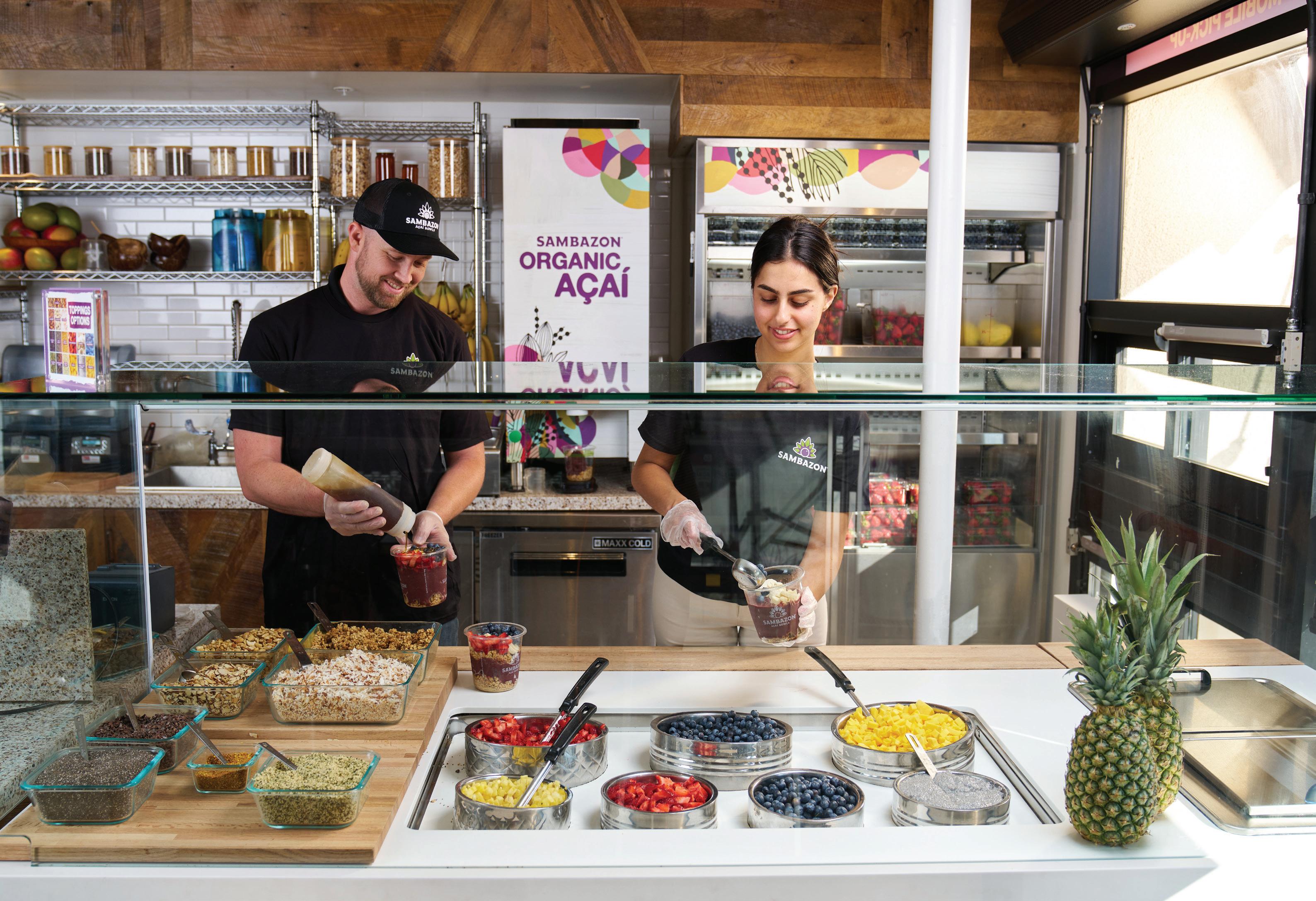


Written by LARRY LAYTON
Successful multi-unit owners believe they’ll crush it when they double down to expand. They have a vision, a rock-solid financial plan, and a six-pack of profitable locations. So why not scale up? Like Tony Stark in “Iron Man” during his early “I’m invincible” days, it’s not as simple as it seems. Let’s bust four myths that leave even the best enterprise builders flying too close to the sun.
Myth
Financing is a big hurdle, right? Wrong. Money follows when your locations are profitable and you have a solid business plan. The real challenges are expanding with an overstretched support system and underestimating needed infrastructure. Doubling operations means scaling your systems and talent so that you can let go of daily decision-making.
Myth
Top-notch operators like War Machine—as played by Don Cheadle in Marvel movies—are reliable, disciplined, and excellent at executing. But operational prowess doesn’t always translate to leadership. Scalability demands more than running a tight ship; it requires strategic thinking and effective delegation.
Micromanaging multiple units is like Tony Stark trying to control his assistant, Jarvis; his love interest, Pepper Potts; and all of his Iron Man suits simultaneously—chaos! Great leaders inspire their teams, empower managers, and focus on big-picture growth. They reassess and fine-tune their processes to support scaling. Even Stark delegates. If control is your sweet spot, try a new look. Leadership can be learned.
Myth No. 3
Some believe more units will require more work. That’s not necessarily so if you leverage technology. Let systems do the heavy lifting. Embrace cloud-based CRMs and KPI monitoring. You can’t be hands-on with every location. Empower others and adopt a continuous improvement mindset.
Look to your franchisor for systems that enable you to work smarter, not harder. Put the right people in place, give them the right tools, and focus on leadership. This approach helps achieve that elusive work-life balance while keeping the business thriving.
Operators might believe they can rely on their own infrastructure instead of their franchise support team. Wrong again. You’re the investor managing a portfolio. Robust support systems are essential to earning the solid returns you require. Your managers do not have your commitment to the business and are likely to leave. A healthy culture, franchisor training, and operational resources can fill gaps when that happens.
Scalable franchise systems need robust systems to monitor performance as well as onboard and train talent. You are responsible for executing the game plan to keep your managers engaged and thriving. Investing in people and processes limits costly turnover.
Successful enterprise growth boils down to three critical elements: competencies, capacity, and capital. Think of them as your Iron Man suit. Without all three—and a mindset of continuous improvement—you’re flying blind.
Here’s a closer look:
• Competencies. Skills are never static; they must evolve to lead multi-unit teams and scale the business effectively. This goes beyond technical skills at an operational level. Leadership and strategic thinking must be developed throughout the organization, which means you, your district managers, and your leadership team.
• Capacity. Personnel, equipment, and operating systems must have the bandwidth to scale. Doubling units without doubling capacity is a recipe for disaster.
• Capital. Cash is the fuel that propels growth. Ensure you have enough to seed new units without draining resources from existing ones.
Franchisees who nail the three C’s thrive. They develop leadership and build systems that maintain financial stability to keep everything humming. Franchisors must define how these elements scale within their models and provide the necessary training and support to help franchisees succeed.
Here’s a quick scalability readiness checklist:
• Expansion criteria. Have you established criteria for the competencies, capacity, and capital required for your next level of growth?
• Vision alignment. Is there a shared vision throughout your organization that supports your growth and success objectives?
• Empowerment. Are your teams empowered to identify and overcome operational roadblocks?
• Recruitment strategies. Do you have strong recruitment and onboarding programs for key positions?
• Financial performance benchmarks. Do you use financial and KPI benchmarks to guide expectations?
• Leadership training. How do you enhance soft skills, like communication, coaching, goal setting, and delegation?
• Profitability projections. Can you project profitability timelines based on reliable data?
• Financial training. Do you offer financial training to help managers improve profits and cash flow?
• Data-driven decisions. Do you share data insights, including unit profitability, to guide continuous improvement across all locations?
If you check all these boxes, you’ve got the Iron Man armor of scalability—ready to expand, build teams, and dominate the world of enterprise development. Now, suit up and get to work!
Larry Layton, CFE, is the newest member of the Profit Soup team. His insights as a franchise operations executive, business consultant, and business owner bring new depth to the team.






Written by TORI WAGNER
Diversification is a key strategy for mitigating risks and enhancing growth opportunities. By investing in various franchise sectors or categories, an owner can balance the company’s portfolio, tap into different market demands, safeguard against industry-specific downturns, and potentially bring in outside capital for specific brands or segments of the portfolio.
The franchise industry offers a variety of businesses operating under a similar structure. Diversifying your investment in different types of franchise businesses will spread risk and increase potential returns. By venturing into various sectors, franchisees can protect themselves from market volatility affecting any single industry. This strategy stabilizes income and opens avenues for growth and resilience.
Food franchises dominate the franchise industry due to their longtime leadership in the franchise model, widespread appeal, and consistent consumer demand. The sector is incredibly diverse, ranging from fast-food giants to high-end dining establishments. Subsectors within food franchises include QSR, fast-casual, and full-service restaurants. Food franchises benefit from high consumer demand and established brand loyalty. However, they face intense competition and complex operational requirements, including inventory management and staffing.
Non-food franchises include services and retail. These franchises often cater to essential needs and lifestyle improvements. Options include:
• Fitness and wellness. Brands cater to a wide range of consumers, starting with thinly staffed DIY brands to centers offering a variety of high-end services at full and premium prices. Front-end costs vary. Fitness brands focus on health and
well-being, reflecting a growing trend toward personal fitness, and target every feasible demographic.
• Education and tutoring. Increasingly, parents prioritize investing in their children’s educations. Services focus on math, writing skills, language, testing, and foreign languages. Education and learning services will continue to grow and provide services sought by parents aiming to enhance their children’s learning.
• Home services. Franchises include cleaning services, home repair, and preventive maintenance. These franchises are typically labor focused and territory based with lower up-front investments than traditional brick-and-mortar locations. Services focus on consumers who need trusted service providers to manage household tasks.
• Retail. Many well-known brands are franchised. Look for business models that perform well in good and bad times. Fads generally offer profit only for early entrants into a space or brand.
Non-food franchises often tap into stable or growing markets and don’t directly compete with food services. However, they may face challenges related to market saturation, evolving consumer preferences, and competition with local small businesses.
Emerging franchises offer high-growth potential, but there’s an elevated risk of failure. These businesses often capitalize on technological advancements. Current trends include automated services, eco-friendliness, personalized services, and new health trends, such as those specializing in mental health, holistic therapies, and alternative medicine.
Legacy franchises are well established with long histories and proven track records. They offer stability and consistent performance. These franchises have been market leaders
for decades, offering reliability and brand strength. They benefit from strong brand recognition and loyal customer bases.
However, they may need to modernize to stay relevant and compete with newer, more innovative brands. Additionally, investors seeking to join these brands will see more expensive price tags for existing networks than for other brands. Investors can also expect limited opportunities for expansion in core markets as well as higher up-front and ongoing capital costs.
When considering a potential investment in a new franchise, evaluate your financial goals, risk tolerance, and personal interests to choose the right franchise types for your portfolio. Conduct thorough research on each franchise opportunity, including market trends, financial performance, and operational requirements. When balancing your portfolio, aim for a mix of franchise types and sectors to reduce risk and maximize growth potential. Look at opportunities close to existing operations, which can help with oversight and growth. Consider factors like market stability, consumer demand, and operational complexity and keep up with industry trends and emerging opportunities to make informed investment decisions and adapt to changing market conditions.
Most importantly, research the brand. Talk to other franchisees. Talk to successful and failed operators. Get to know the owners. Are they founders, investors, or private equity owners? Understand the brand’s finances and growth plans.
Diversifying your franchise portfolio can enhance your investment strategy and provide a stable foundation for growth. By exploring various franchise types and staying informed about industry trends, you can build a resilient and profitable portfolio. Investing in different franchise types can create long-term success and stability in the dynamic franchise industry.
Tori Wagner is a vice president with C Squared Advisors, an advisory firm that focuses on multiunit franchisees and franchisors. She has worked with franchisees for more than a decade, advising clients through M&A transactions as well as raising debt and equity capital to support strategic initiatives. Contact her at 508-769-0097 or tori@ c2advisorygroup.com.
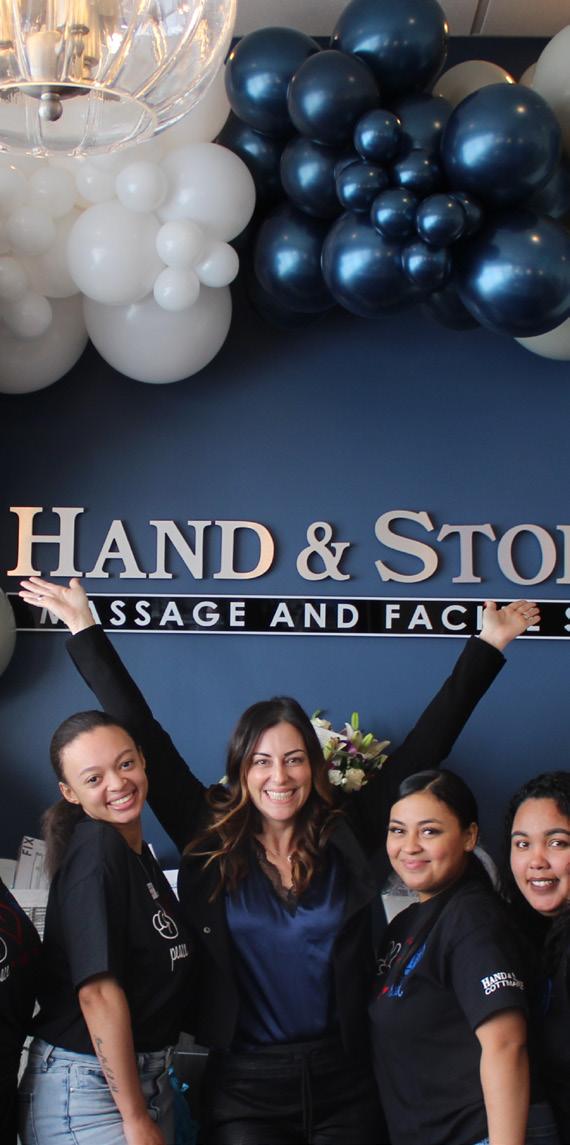


Hand & Stone’s proven business model makes multi-unit franchising more accessible to every franchisee. The highest compliment we can receive from a franchisee is when they want to reinvest in our brand. In fact, 72% of our system is multi-unit owned. To make multi-unit franchising possible for every franchise owner, Hand & Stone offers a 34% discount off the franchise fee for every additional unit.

$1.4M* AVERAGE ANNUAL GROSS SALES

20 YEARS OF ANNUAL GROWTH #1 IN MONTHLY MEMBERSHIPS PER SPA 500+ LOCATIONS NATIONWIDE



IN REVENUE WITH FIVE AVAILABLE PROFIT STREAMS

Written by CAROL SCHLEIF
“When you increase productivity, economies become better—local economies become better, society becomes better.”—Jensen Huang, CEO, NVIDIA.
As this column was being drafted, most U.S. market indexes were hitting alltime highs in the wake of the U.S. Federal Reserve’s first interest rate cut in more than four years. Investors are choosing to agree with the Central Bank’s framing of the unexpectedly large inaugural cut as a method to ensure continued growth rather than as an antidote for sluggishness.
Hopes are high on both Wall Street and Main Street that the tone is set for solid business activity in coming quarters, boosting the odds for above-average earnings and GDP growth. We have long believed that the economy had more underlying strength than it was given credit for and believe so even more strongly today.
While headlines have been focused on the Fed’s move, a variety of underlying fundamentals have positioned the U.S. economy well, allowing it to avoid the recession that most pundits have been predicting for the past two years. Core components of this sturdiness include corporate resilience into, through, and after pandemic shifts in end-user demand, persistent consumer spending, and increasingly diversified sources of growth and operating capital for companies all up and down the size curve.
It is vital to recall that the challenges that businesses have faced since the start of the decade—pandemic, supply chain disruptions, two hot ground wars—were more an unfortunate series of one-off events than a global conflagration of financial issues that caused a structural bubble in one segment or another (dot.com stocks in the 1990s, housing in the 2000s).
Corporate America in particular did a masterful job of quickly adapting both sides of its balance sheet, focusing on building
sustainable, scalable, and profitable revenue. In aggregate, financial planning and analysis units and C-suites have been adept at adapting to swings at the macro level to keep functioning at the micro level. It’s a trend that remains largely unremarked amid breathless financial media, which often prefer to sow disheartening headlines.

A shift in government philosophy in favor of a focused industrial policy has also helped with more than $1 trillion in legislative allocation lined up via the Infrastructure Investment & Jobs Act, the CHIPS and Science Act, and the Inflation Reduction Act to rebuild and enhance infrastructure, reshore manufacturing, and focus on reviving core industries, like semiconductors, batteries, sustainable energy, and others considered important to national well-being. Interestingly, it is estimated that less than 20% of the federal funds allocated have been spent to date. The process of application, approval, local project permitting, and the raising of matching funds takes time. Given the multitude of announcements, a substantial increase in local and state bonding referendums on this year’s election ballots, and improving financing costs, we expect to see an acceleration of such projects into 2025 and beyond, setting a solid floor underneath potential economic activity.
Another factor lending to our confidence in America’s dynamism relates to the significant advances in the implementation of core technologies, such as the transition to cloud-based processing, machine learning, and the building of use cases for the application of artificial intelligence. Basic analysis of legal contracts, in-the-moment adjustment of supply chain and navigational routes, and drug discovery are in rapid upheaval and rethink.
The combination of all these factors has led to an uptick in aggregate U.S. productivity as shown in the chart from the U.S. Bureau of Labor Statistics. The U.S. Bureau of Labor Statistics noted that nonfarm productivity increased by 2.5% in the most recent quarter (June 2024)—far outpacing the postWWII average and substantially above recent run rates.
Productivity can be viewed as how efficiently the country is converting worker labor into output and helps tee up a solid foundation for continued economic progress. As noted by BMO Economics’ Chief Economist Douglas Porter, U.S. productivity growth has averaged 1.9% a year in the five years ended June 2024, a far cry from Canada’s negative productivity growth over the same time, which has raised alarm bells in America’s neighbor to the north.
The angst-ridden 2024 U.S. election cycle has contained much hand-wringing over how purportedly poorly the country is doing. Mudslinging, of course, is not unique to this election cycle but is a hallmark of most if not all. With that said, the core message of negativity has obscured an important thread of underlying resiliency that we believe deserves notice.
Carol Schleif is chief investment officer at BMO Family Office. “BMO Family Office” and “BMO Wealth Management” are brand names used by BMO Bank N.A., BMO Family Office, LLC, and certain affiliates providing investment, investment advisory, trust, banking, and securities products and services. These entities are all affiliates and owned by BMO Financial Corp., a wholly-owned subsidiary of the Bank of Montreal (BMO). Investment products are not FDIC insured, not bank guaranteed, not a deposit, and may lose value. To learn more, visit www.bmofamilyoffice.com. Views and opinions expressed are Schleif’s and do not necessarily reflect the views and opinions of BMO.





Written by PAUL WILBUR
The franchising marketplace has grown ever more complex with the increasing number of multi-unit, multi-brand owners (MUMBOs). These entrepreneurs have transitioned from single-brand operators into business owners with diversified portfolios across multiple brands. By leveraging economies of scale, reducing risk, and increasing their influence within franchise systems, MUMBOs are changing the universe of franchisees. These changes are affecting franchise sales and system operations.
At FRANdata, we maintain a database of more than 230,000 franchisees, including more than 42,000 multi-unit owners. To understand multi-brand diversification, we examined the ownership portfolios of franchisees with 25 or more units to see the makeup of their investments.
Our analysis of 986 franchisees with 25 or more units shows that 41% operate across multiple brands, averaging four different brands per portfolio. Multi-brand operations make up 6.2% of their total unit count.
This diversification strategy allows franchisees to tap into different markets and hedge against economic risks. For instance, SSP America operates 172 restaurants, some franchised and some independent, in U.S. airports across the country and spans 14 different franchise brands. Similarly, ZMC Hotels, backed by Hall Equities Group, manages 43 franchised hotels under 19 different flags. Such diversification enables franchisees to respond to shifts in consumer preferences.
Multi-brand franchising helps franchisees mitigate sector-specific risks by diversifying their investments across different industries. If one sector, such as food service, experiences a downturn, a franchisee with non-food brands, like fitness centers or hotels, can rely on those businesses to maintain profitability.
Of the 401 identified MUMBOs, 69% operate exclusively in food brands, 16% operate in non-food brands, and 15% manage a mix of both.
Private equity investors are increasingly drawn to MUMBOs due to their stability, scalability, and growth potential. Multi-brand franchisees offer diversified revenue streams, making them less vulnerable to economic fluctuations and industry-specific challenges than less diverse businesses. They are often more capital efficient than single-brand operators. They can reduce costs by sharing resources and reinvesting in expansion. This growth potential appeals to private equity investors, who see opportunities for rapid scaling with reduced risk.

Operating multiple brands enables franchisees to achieve economies of scale by sharing resources, such as administrative staff, marketing, and supply chains. A franchisee with both restaurant and retail brands can centralize back-office functions, reducing operational costs and improving margins. Larger franchisees also gain more bargaining power with suppliers and franchisors, securing more favorable terms than smaller operators.
However, managing multiple brands across different sectors can add layers of complexity too. Each brand has unique supply chains, marketing strategies, and operational standards. MUMBOs must manage relationships with multiple franchisors, each with its own expectations and contractual obligations. Navigating these relationships requires clear communication and careful attention to each brand’s specific needs. Franchisees must implement strong management systems to ensure all brands operate smoothly.
Franchise sales individuals are finding that they must change their messaging to attract these new complex operators. Not only do you need to have a good brand story for yourself,

but you must consider how your brand fits into the franchisee’s portfolio overall. Suppliers can no longer offer a solution that they know fits for one brand. They must tailor their solution to the operations of multiple business models.
As franchisees continue to consolidate, and private equity continues to invest, the complexity of the operations of the major franchisees will continue to grow. The difference between smaller operator-focused franchisees and mega investment groups will affect how franchise systems develop and operate in the long term because the number of franchisees looking to diversify their operations is only growing.
Paul Wilbur is COO of FRANdata, where he is instrumental in building the company’s research and consulting framework. He manages the research, information management, marketing, and IT departments and plays an integral role in the strategic development of FRANdata’s suite of franchise solutions. Contact him at 703-740-4700.








Our expos are the perfect opportunities to showcase your brand in front of the industry’s most motivated and qualified entrepreneurs. We welcome attendees from ALL 50 STATES, and 67% of these attendees plan to invest within a year. Make your brand their next move!




































































































































































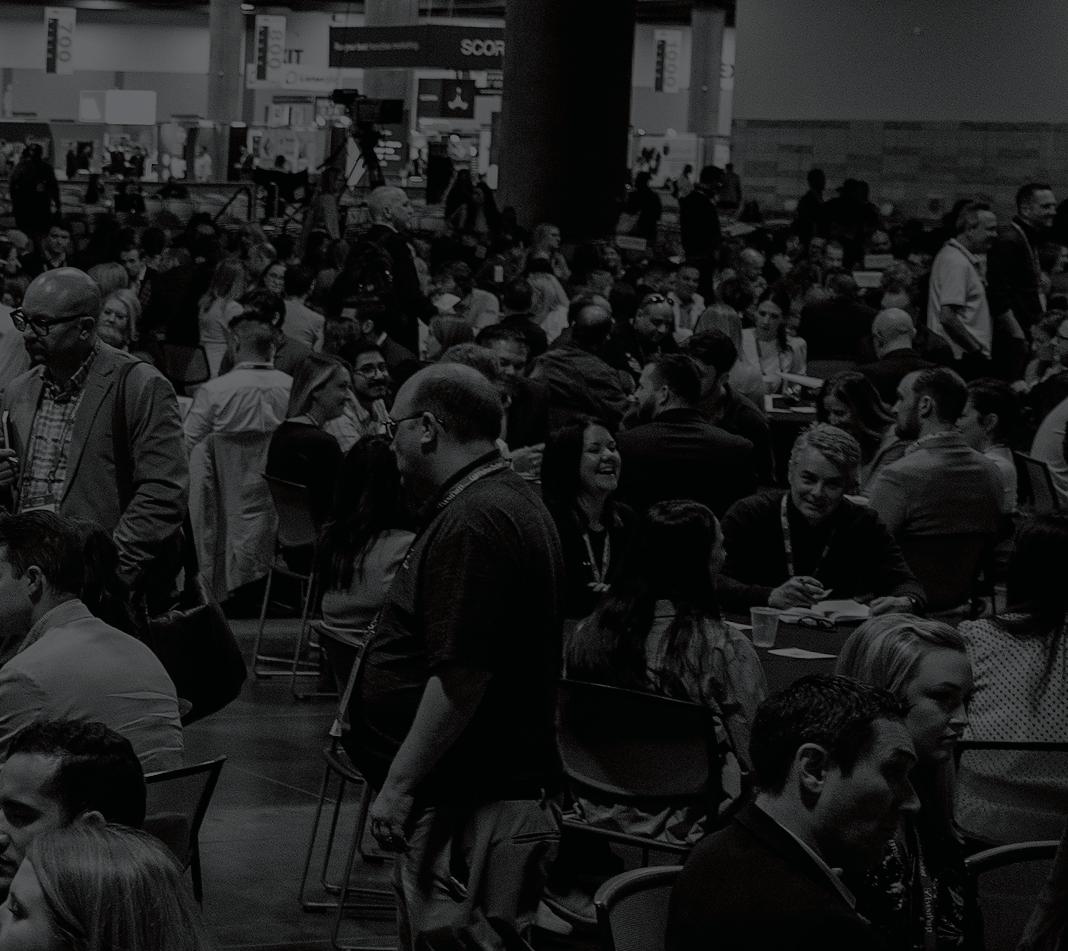





































The backbone of Dine Brands is our network of global franchisees.
Together, we are innovators that embrace new ideas, authenticity, and collaboration to unite franchisees, brands, and team members to go further together.
Thanks to that commitment, Dine Brands is uniquely positioned to grow new and future franchisees’ portfolios of the world’s most beloved restaurant brands.


3,500+ $2 billion
GLOBAL RESTAURANTS IN SALES (Q1 2024)

Explore nationwide franchise opportunities at dinebrands.com/brands
